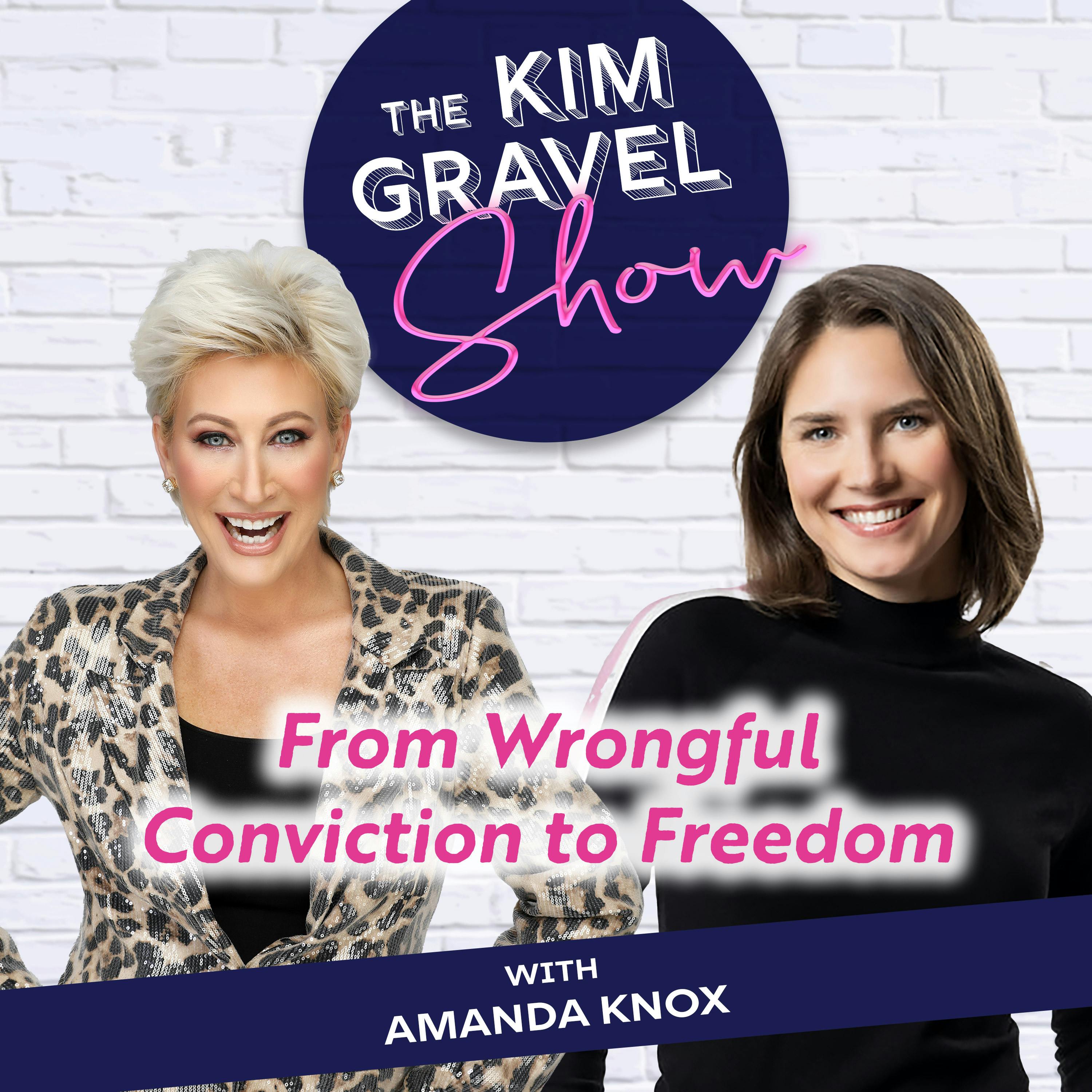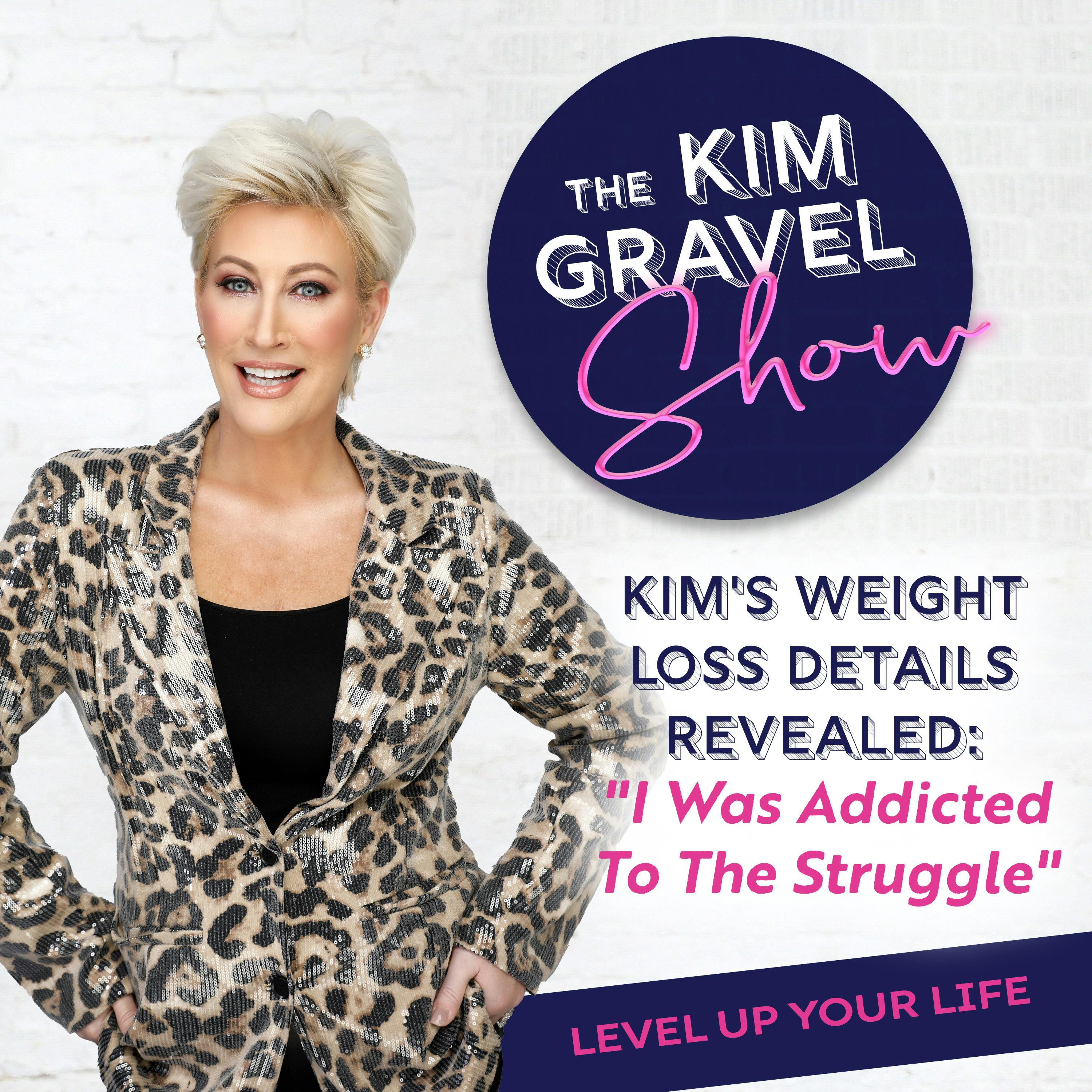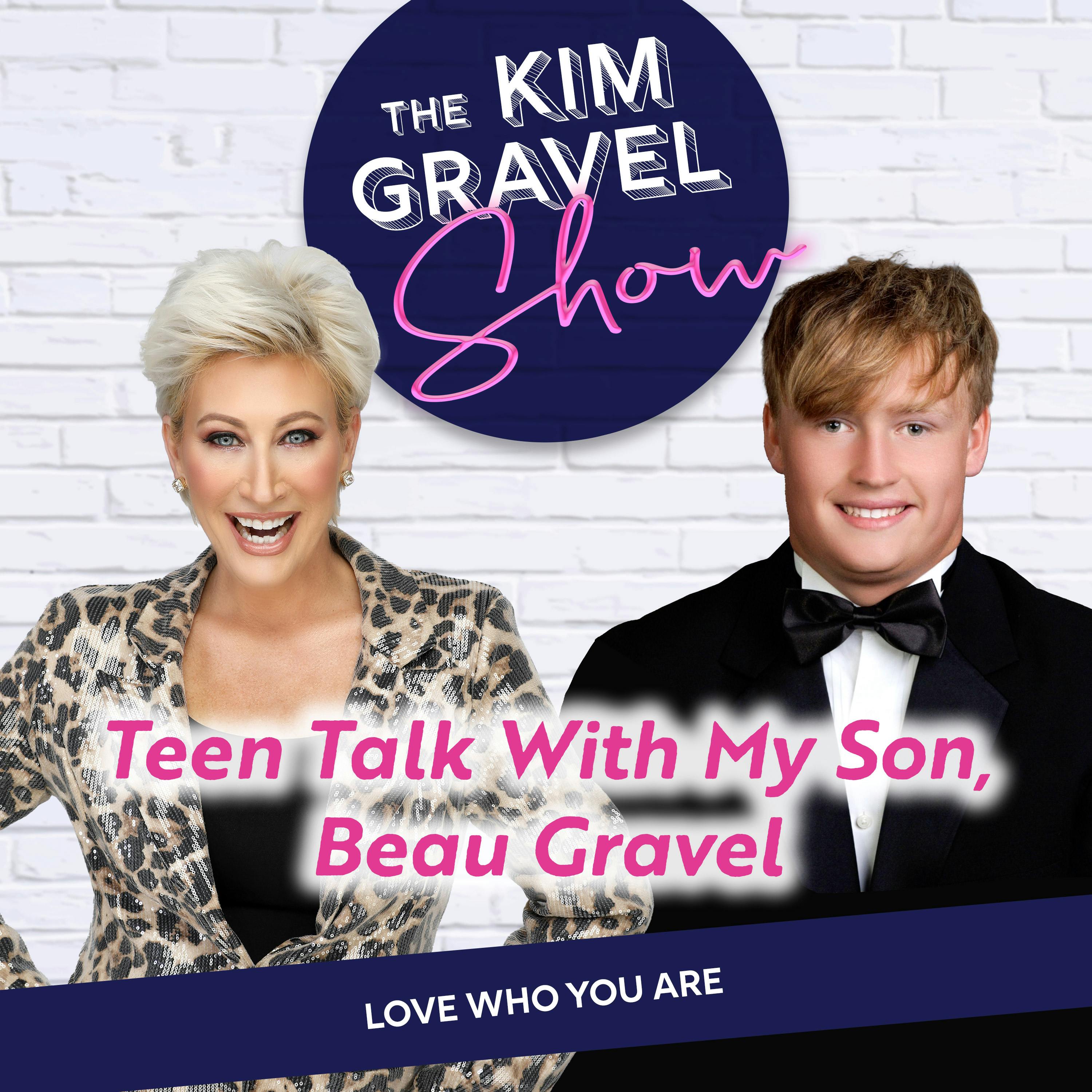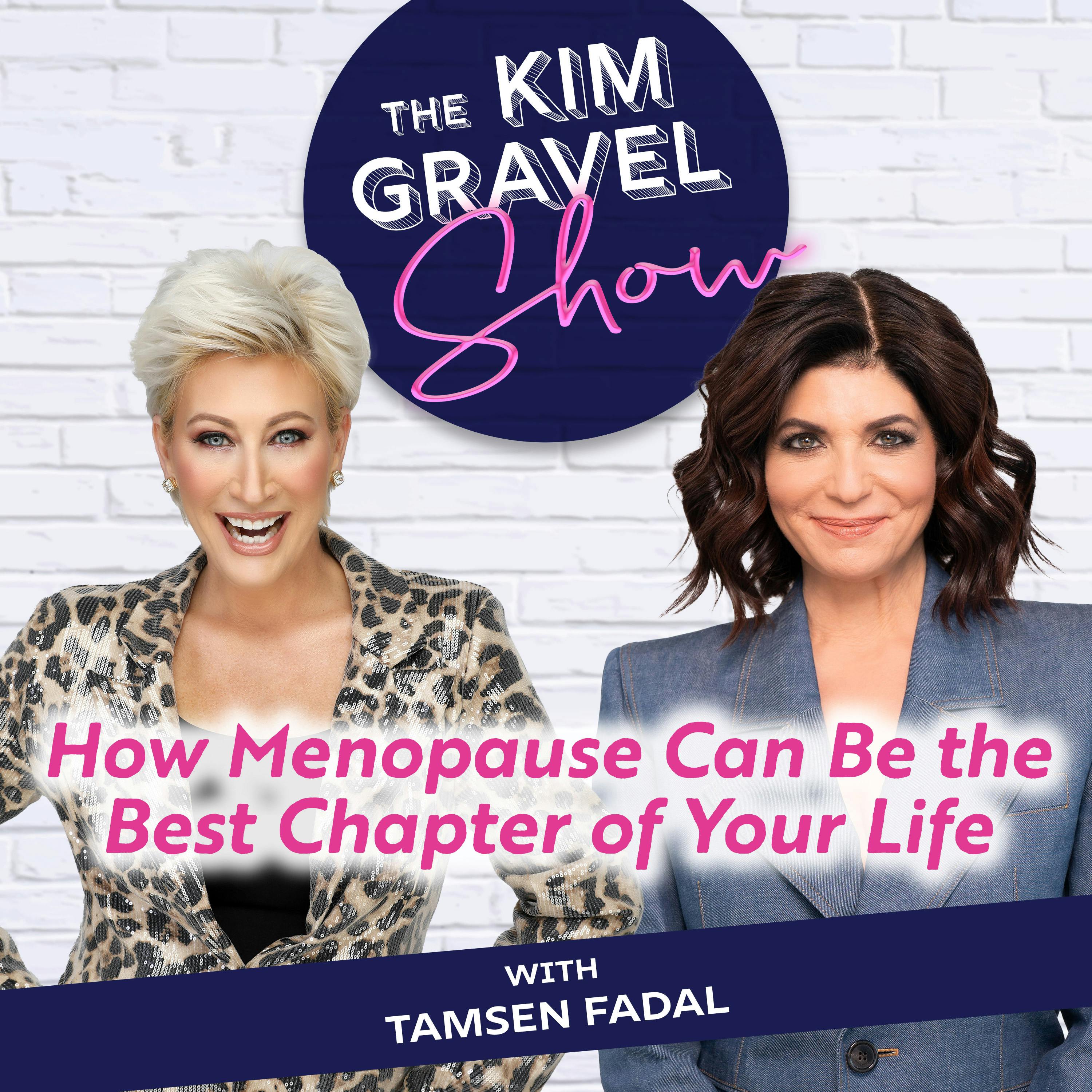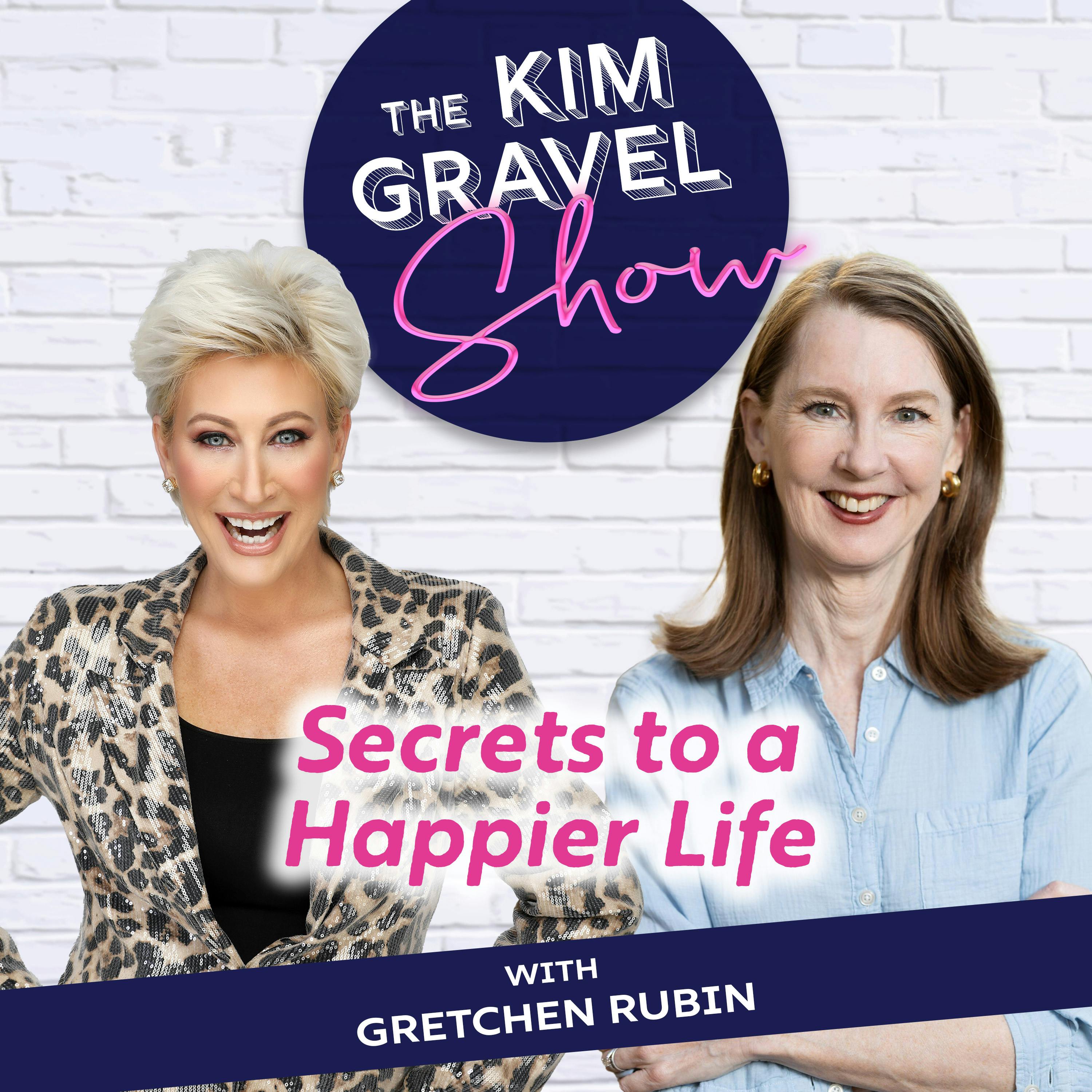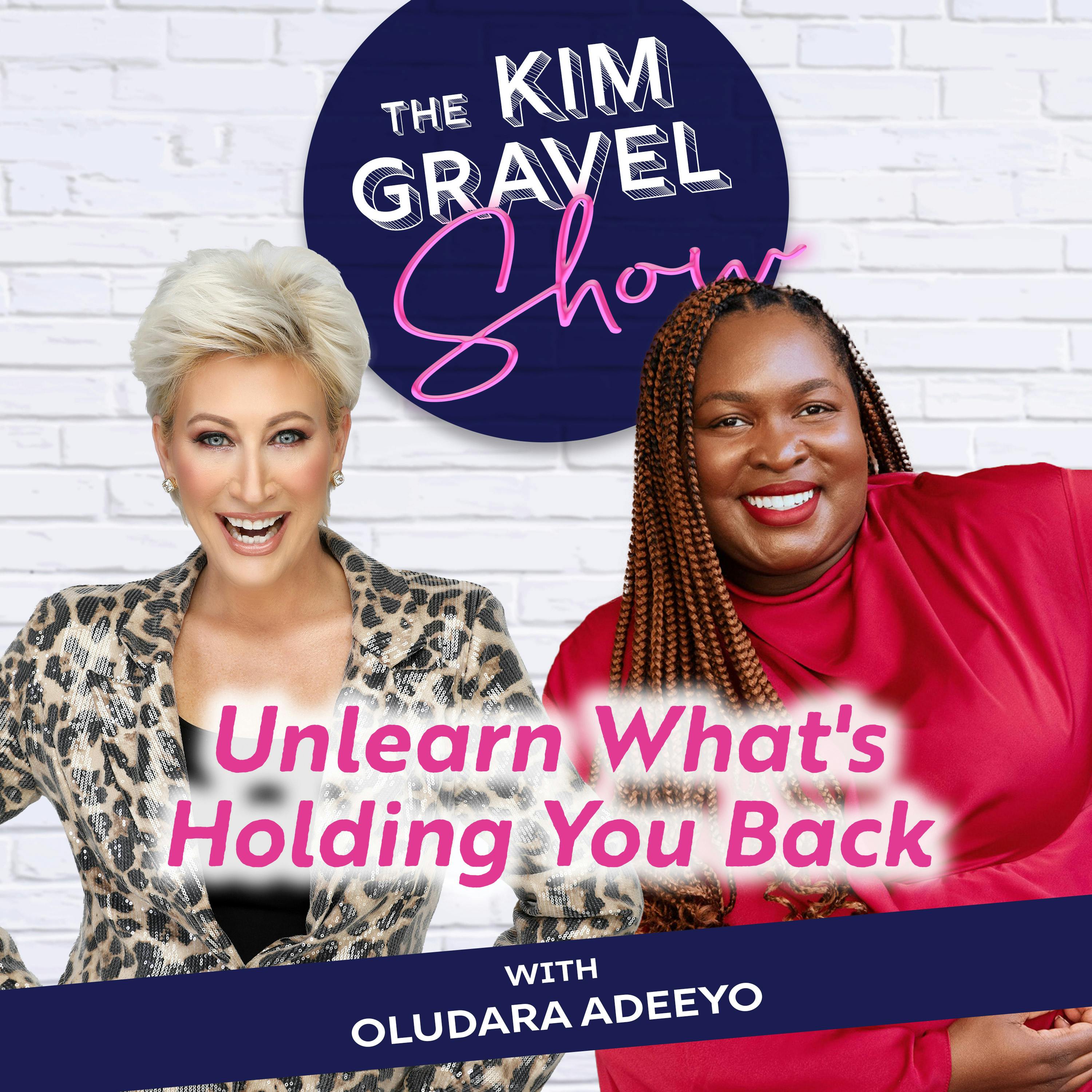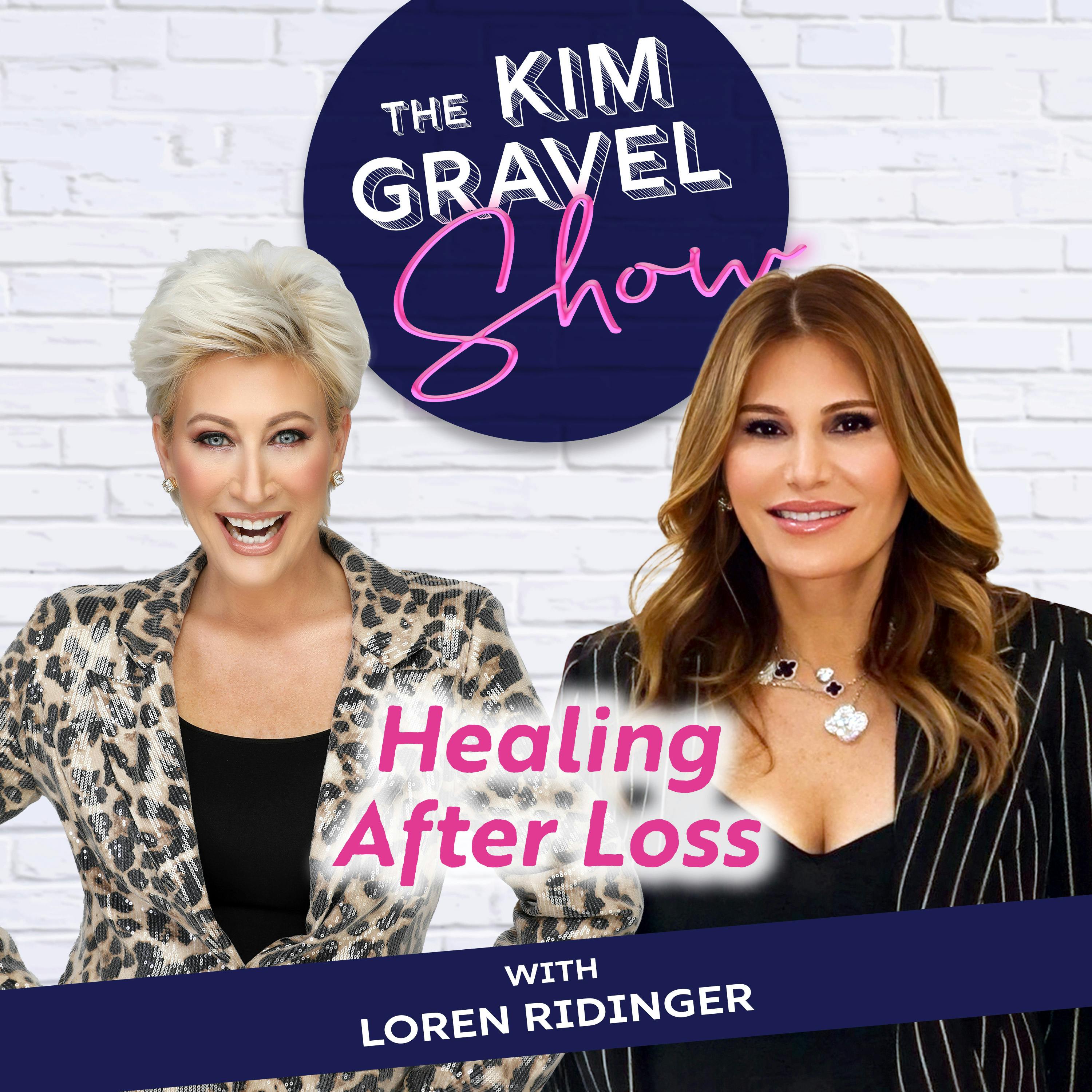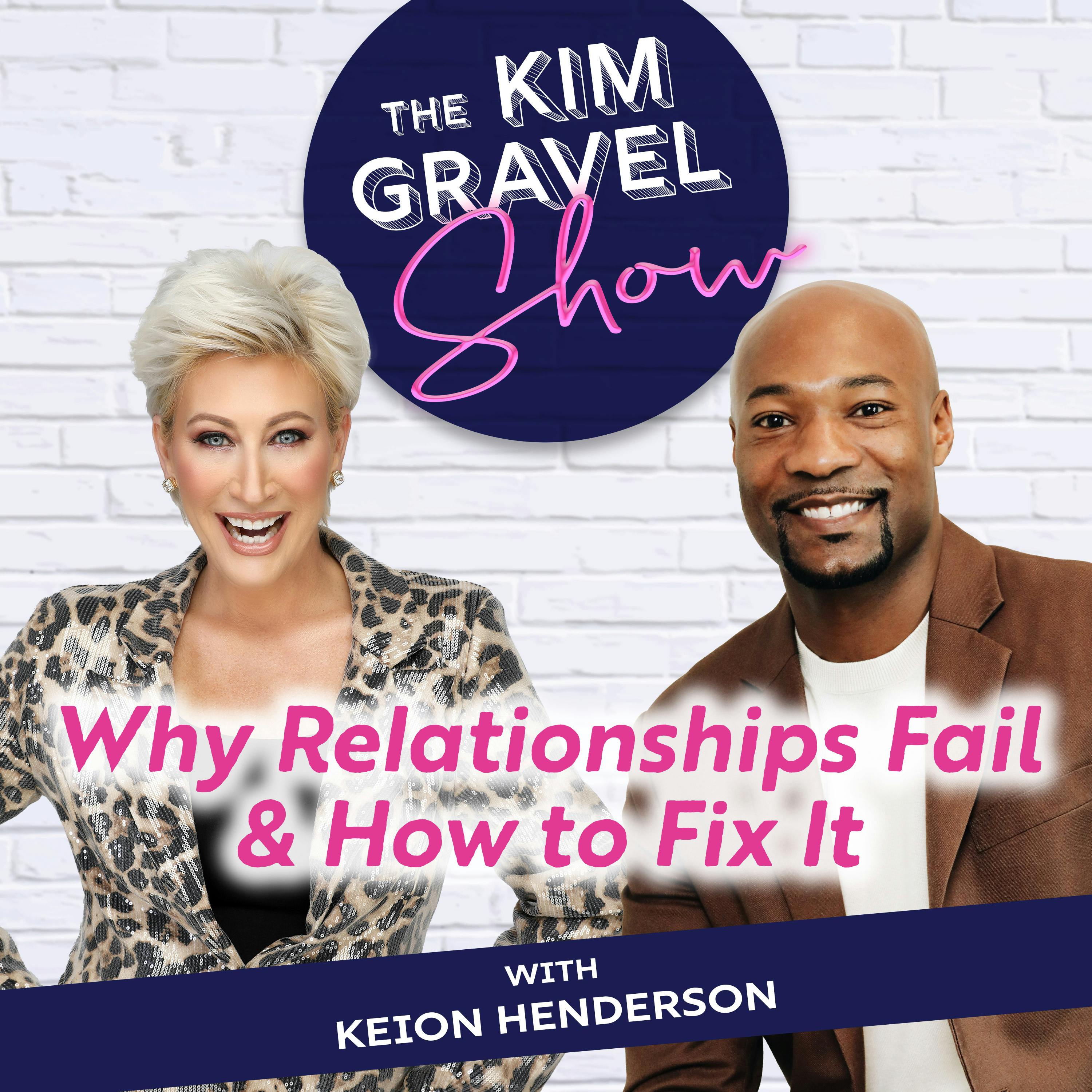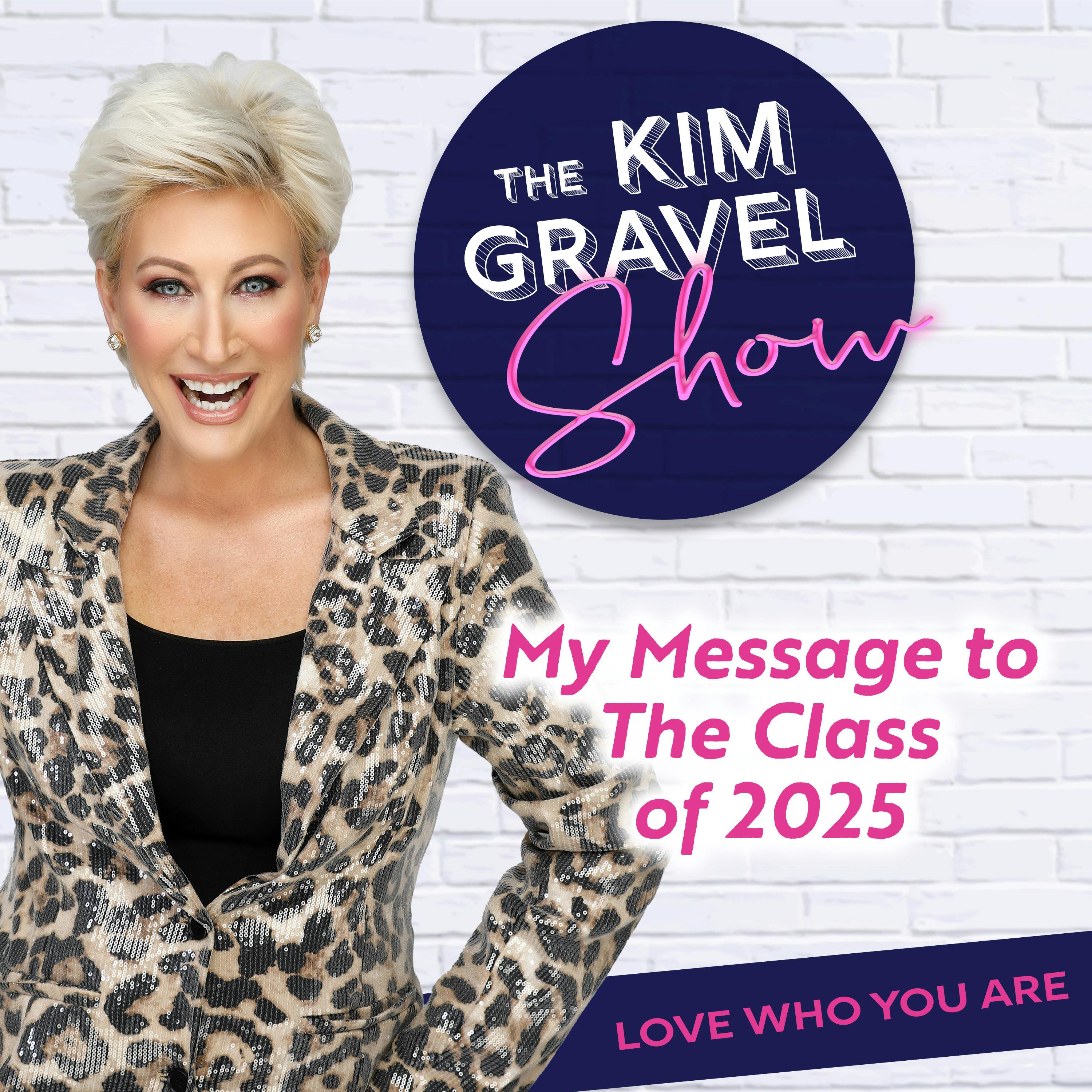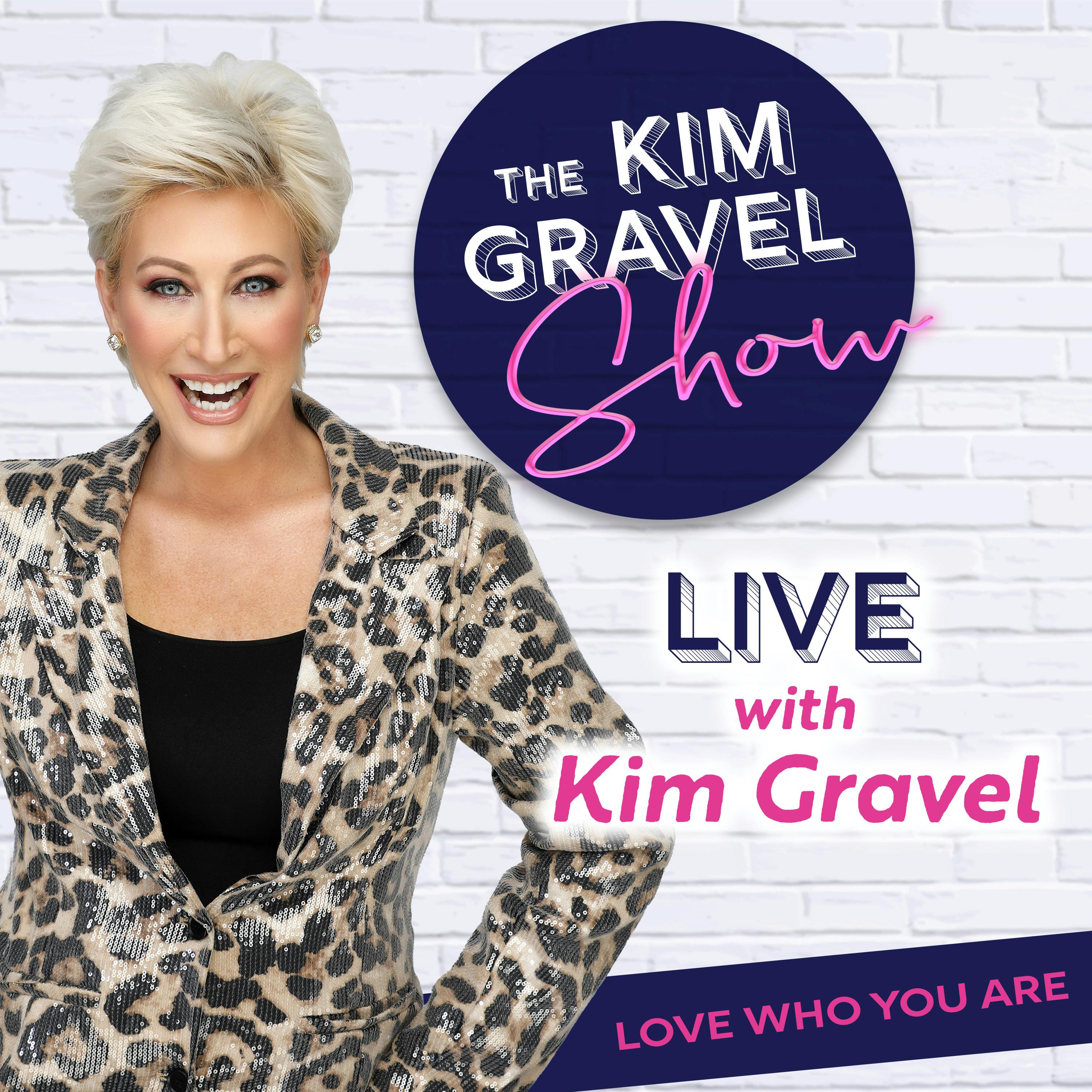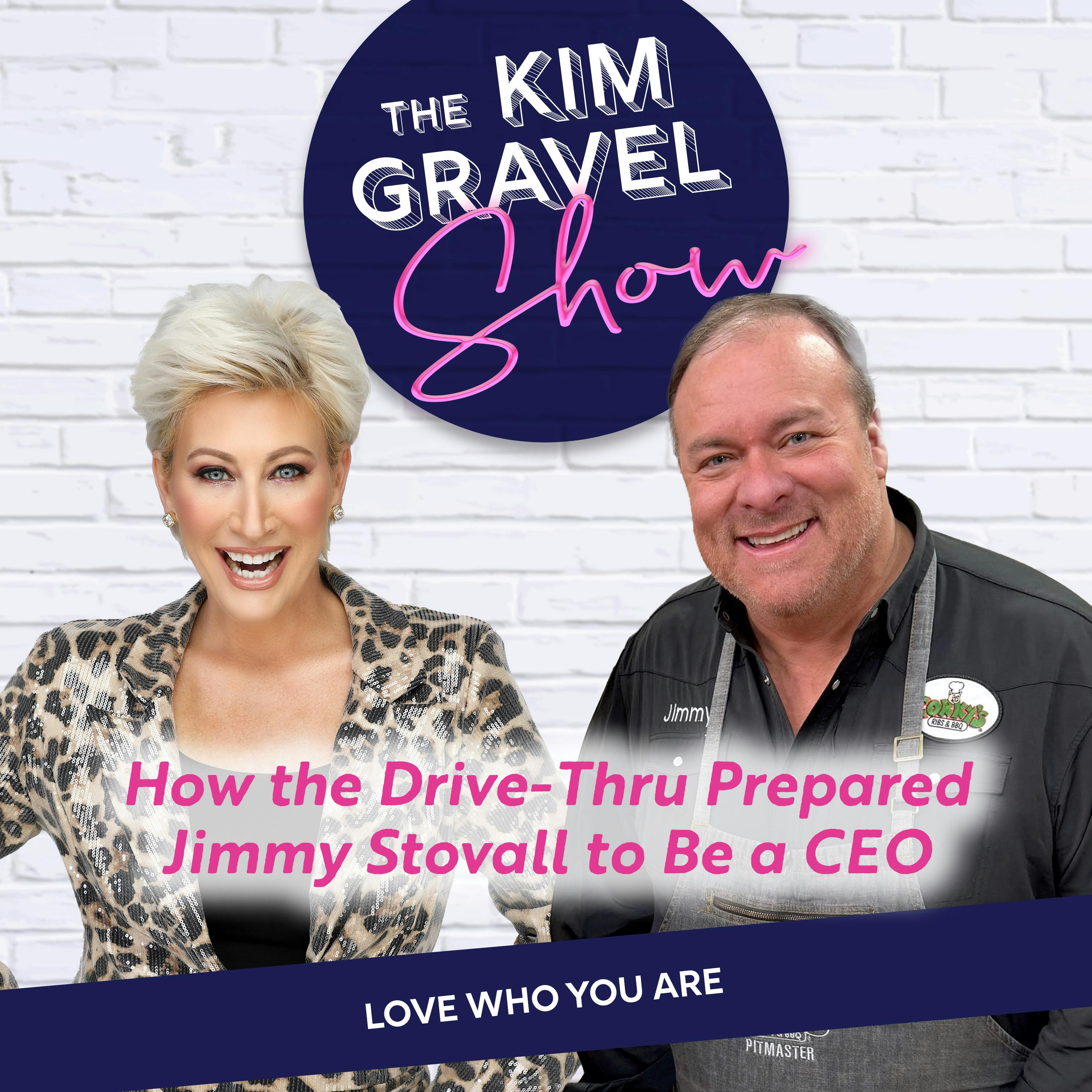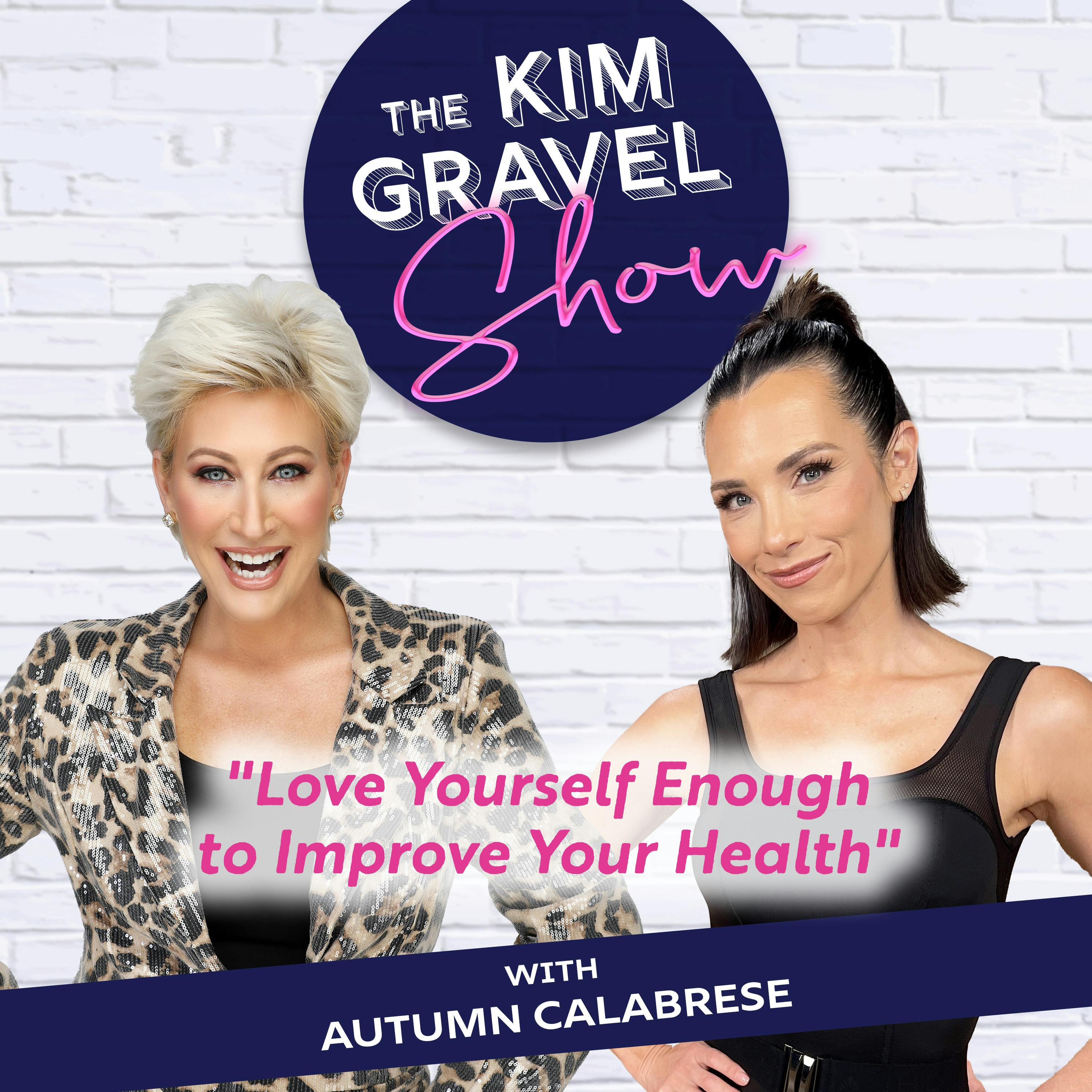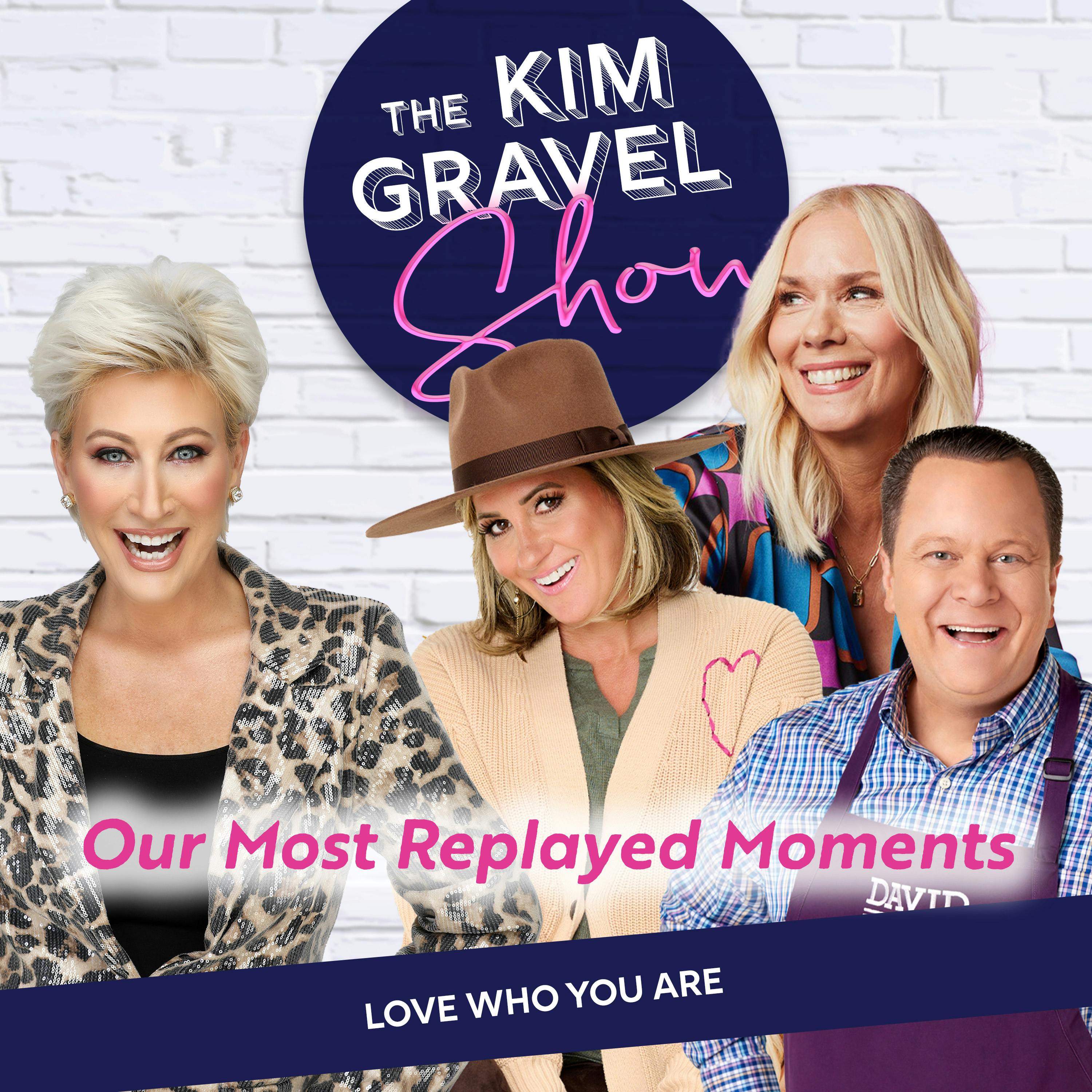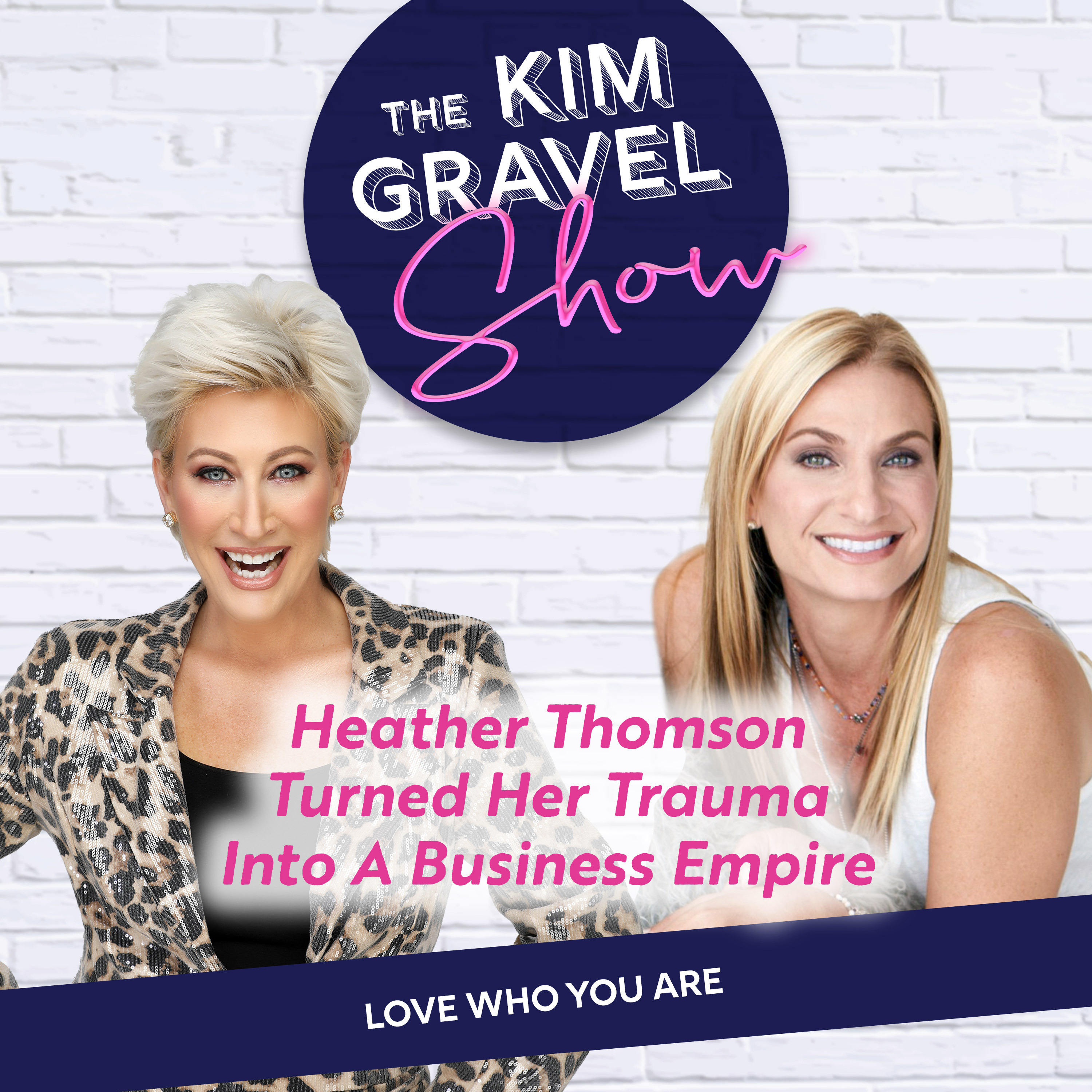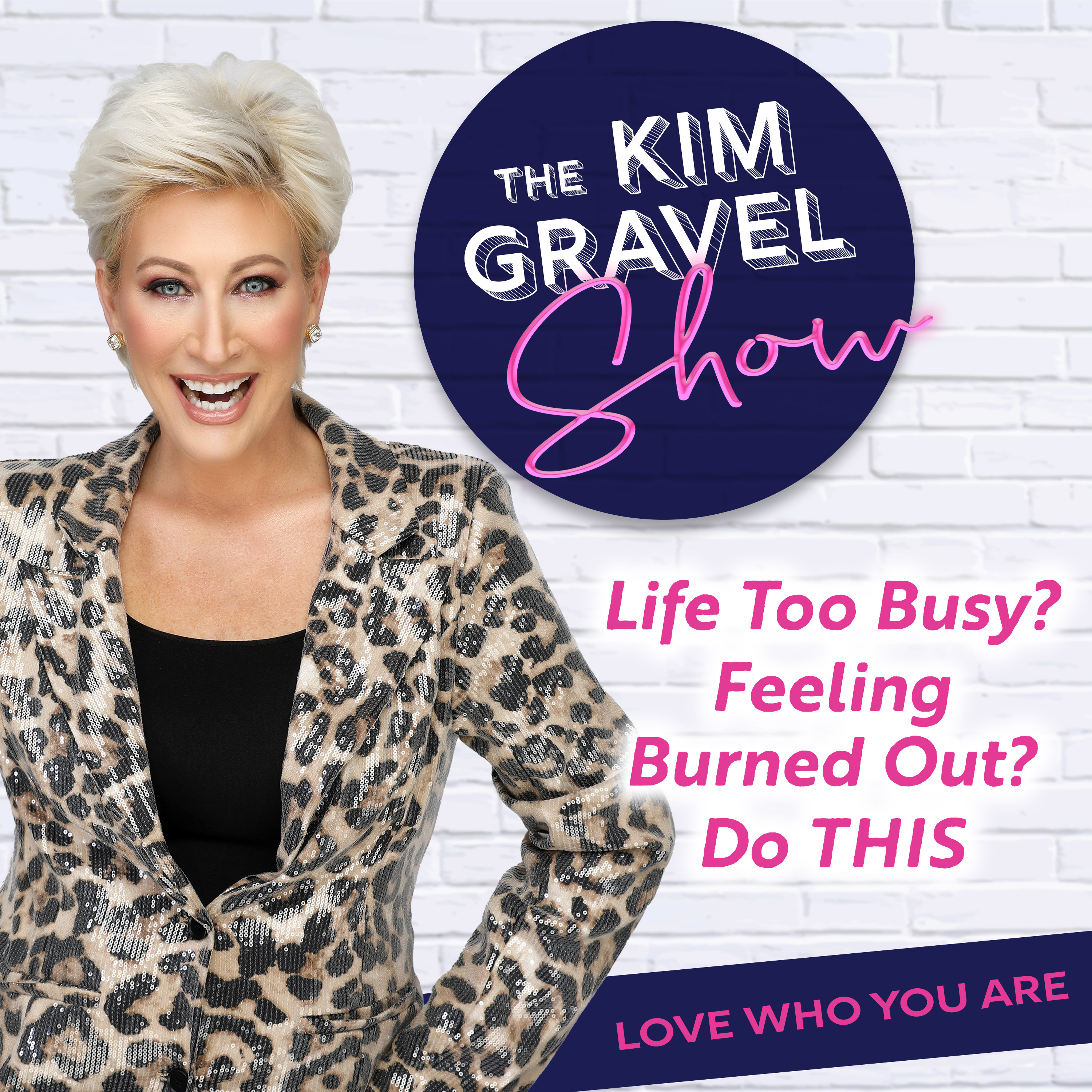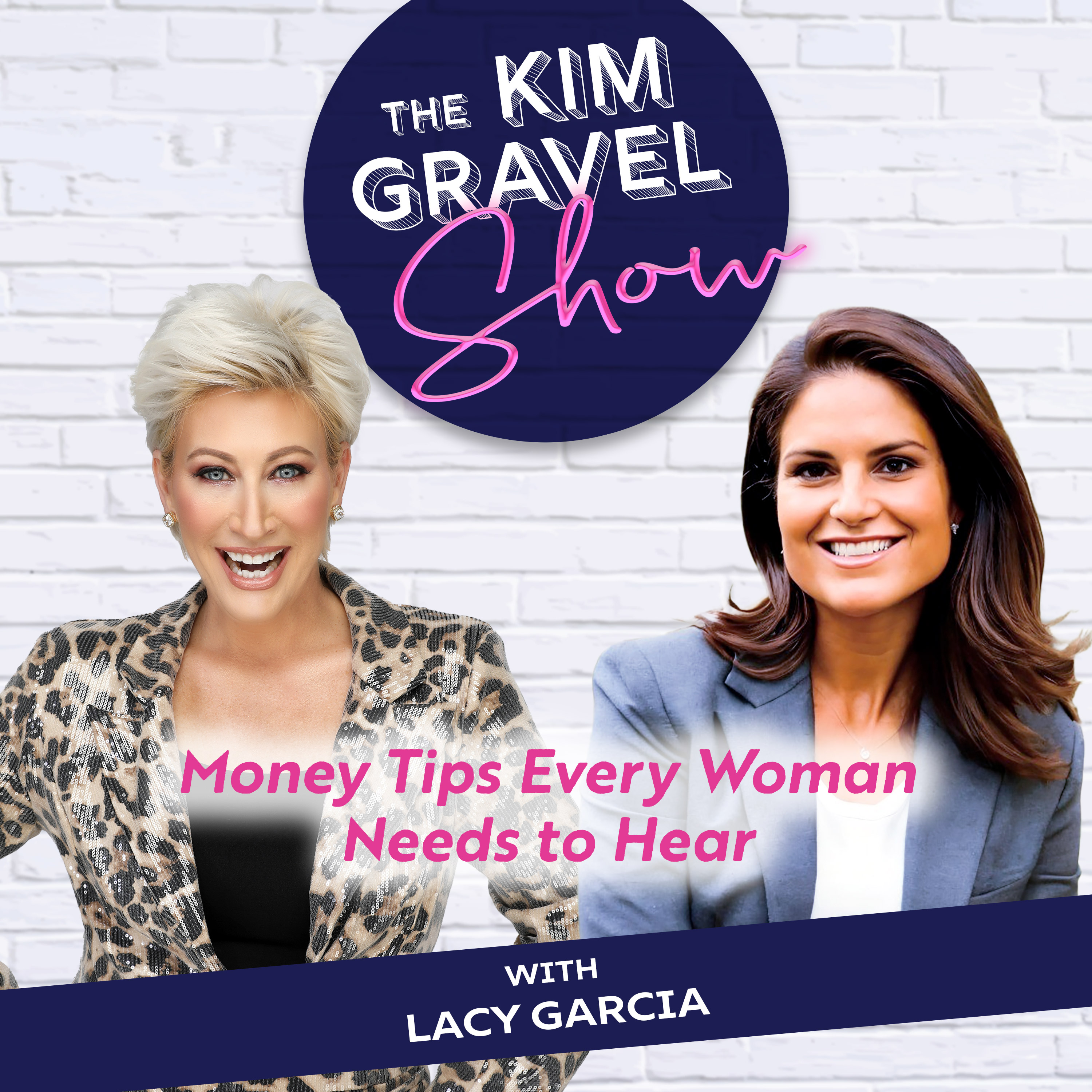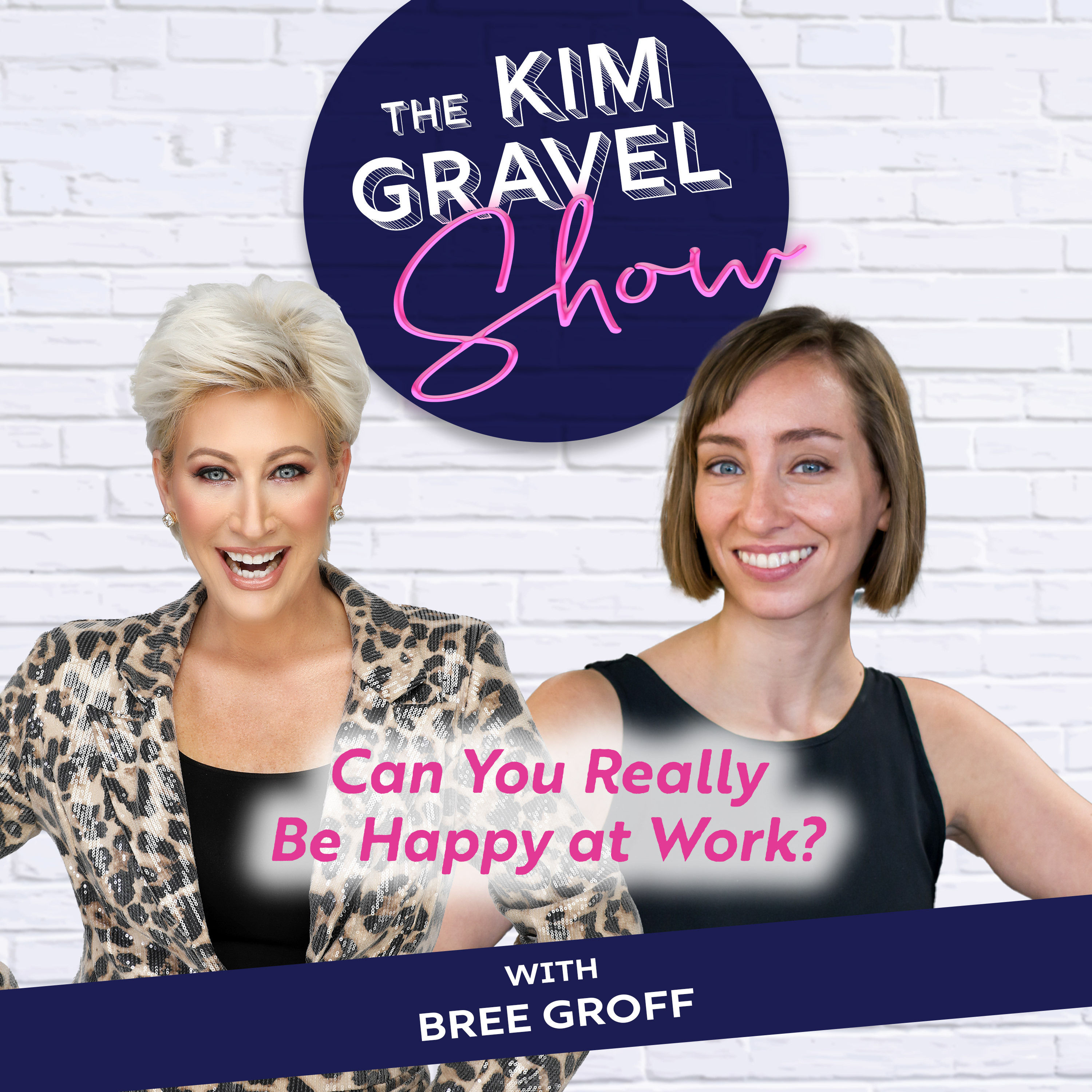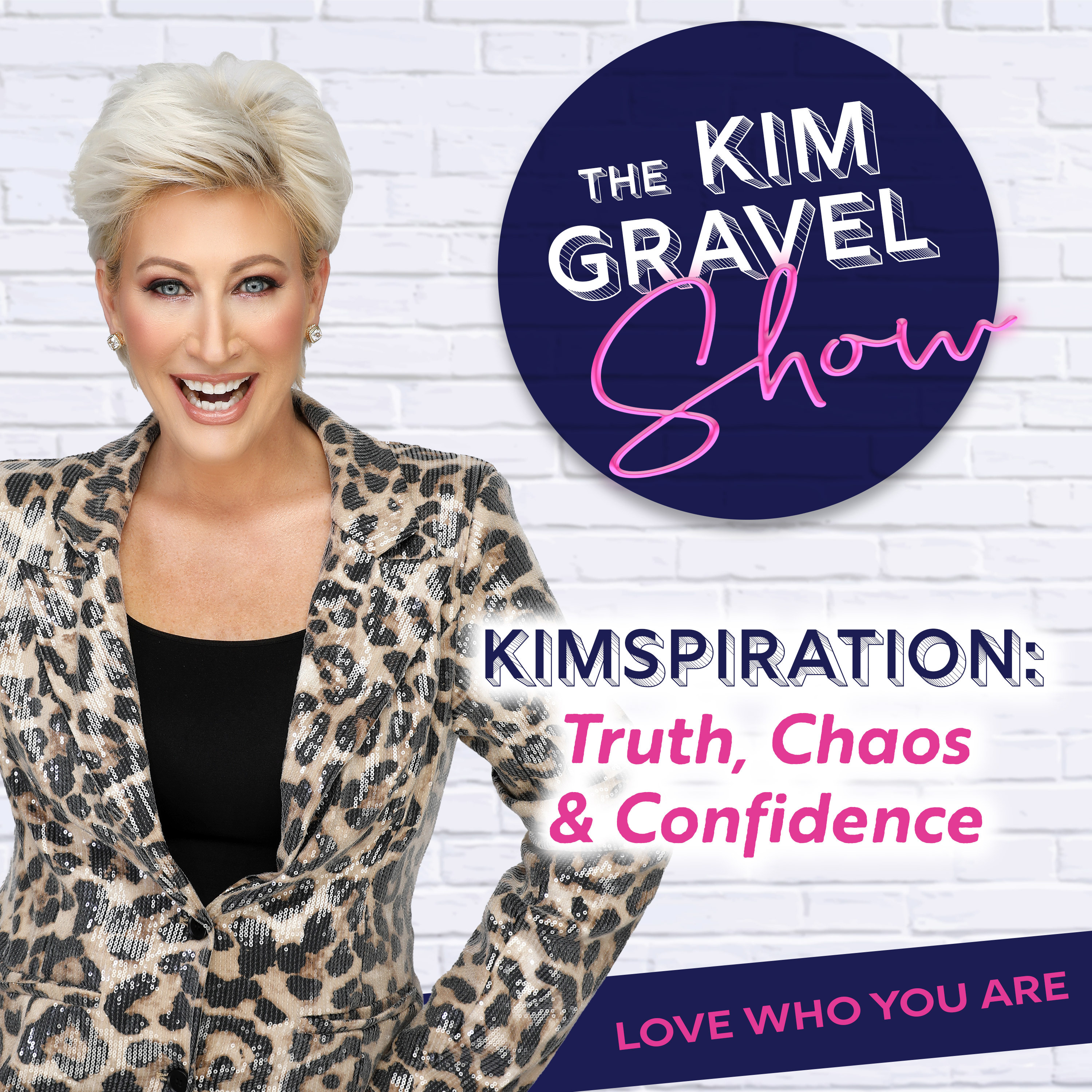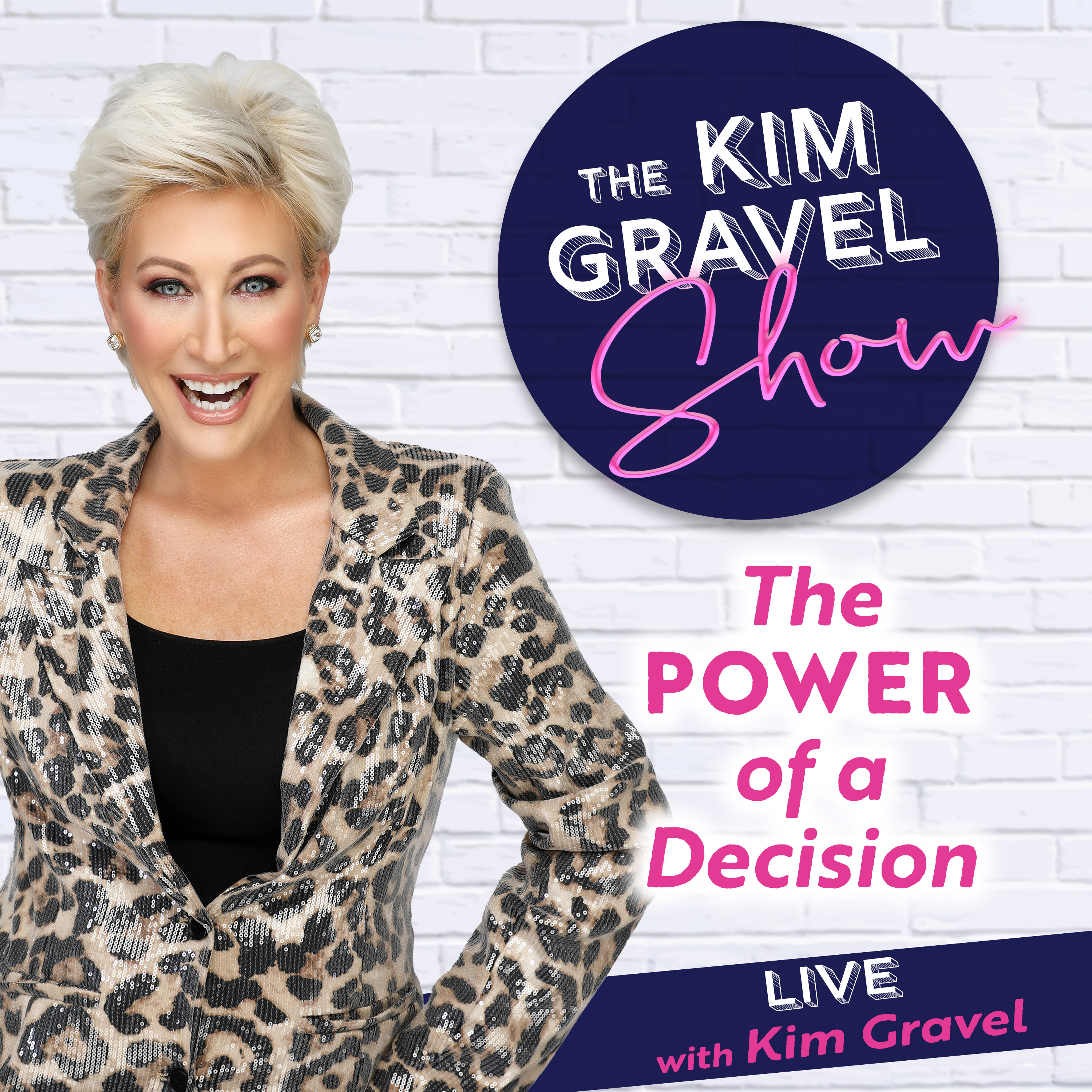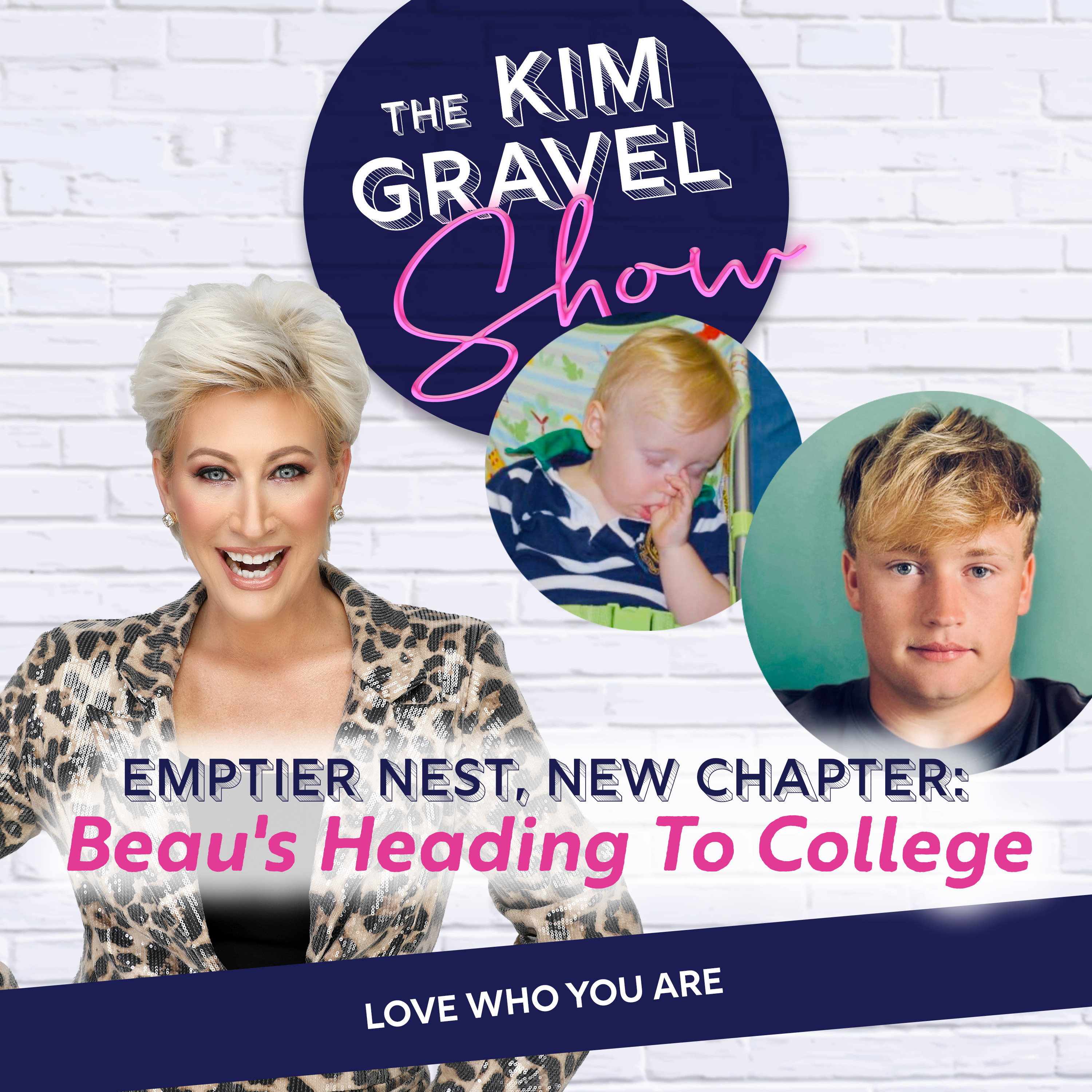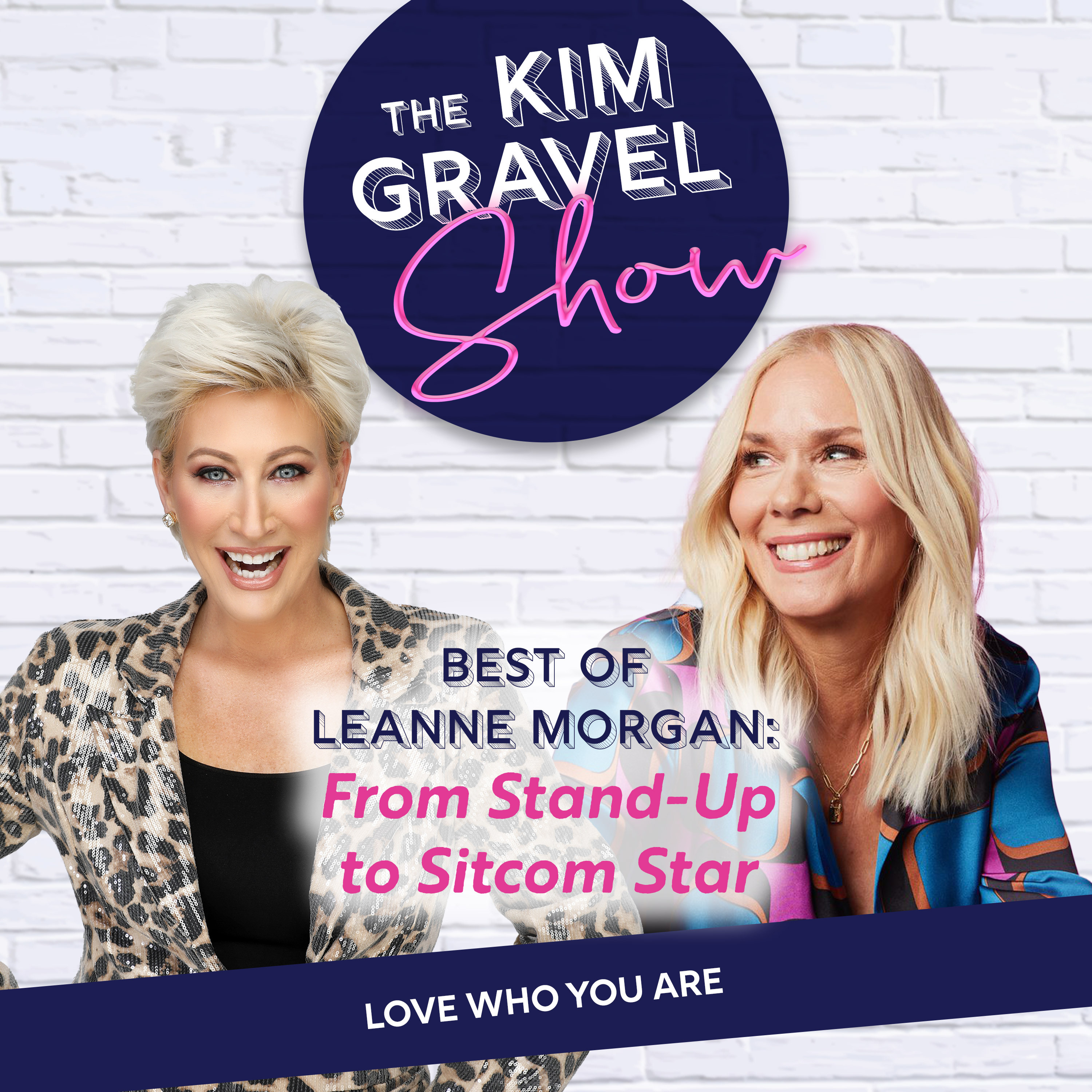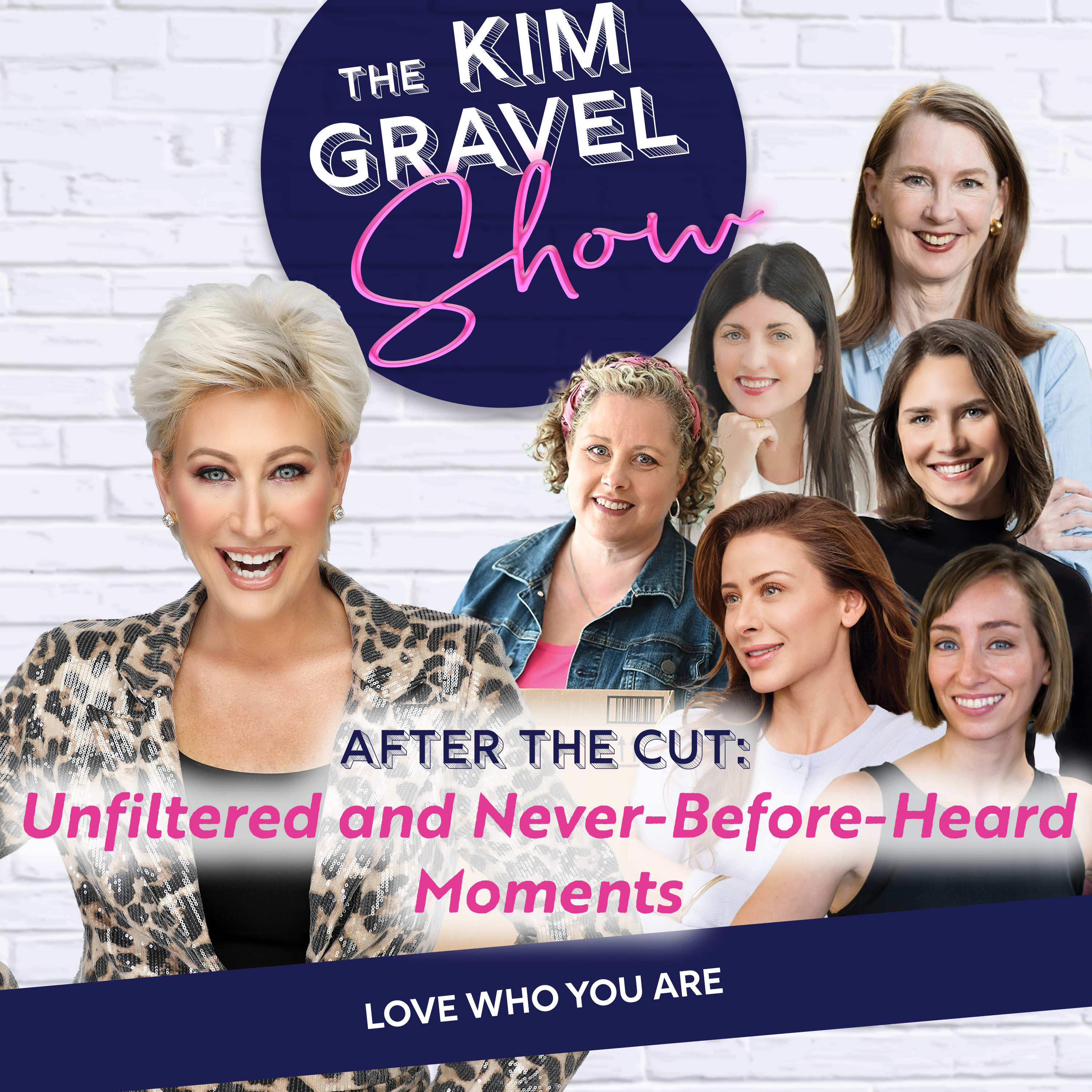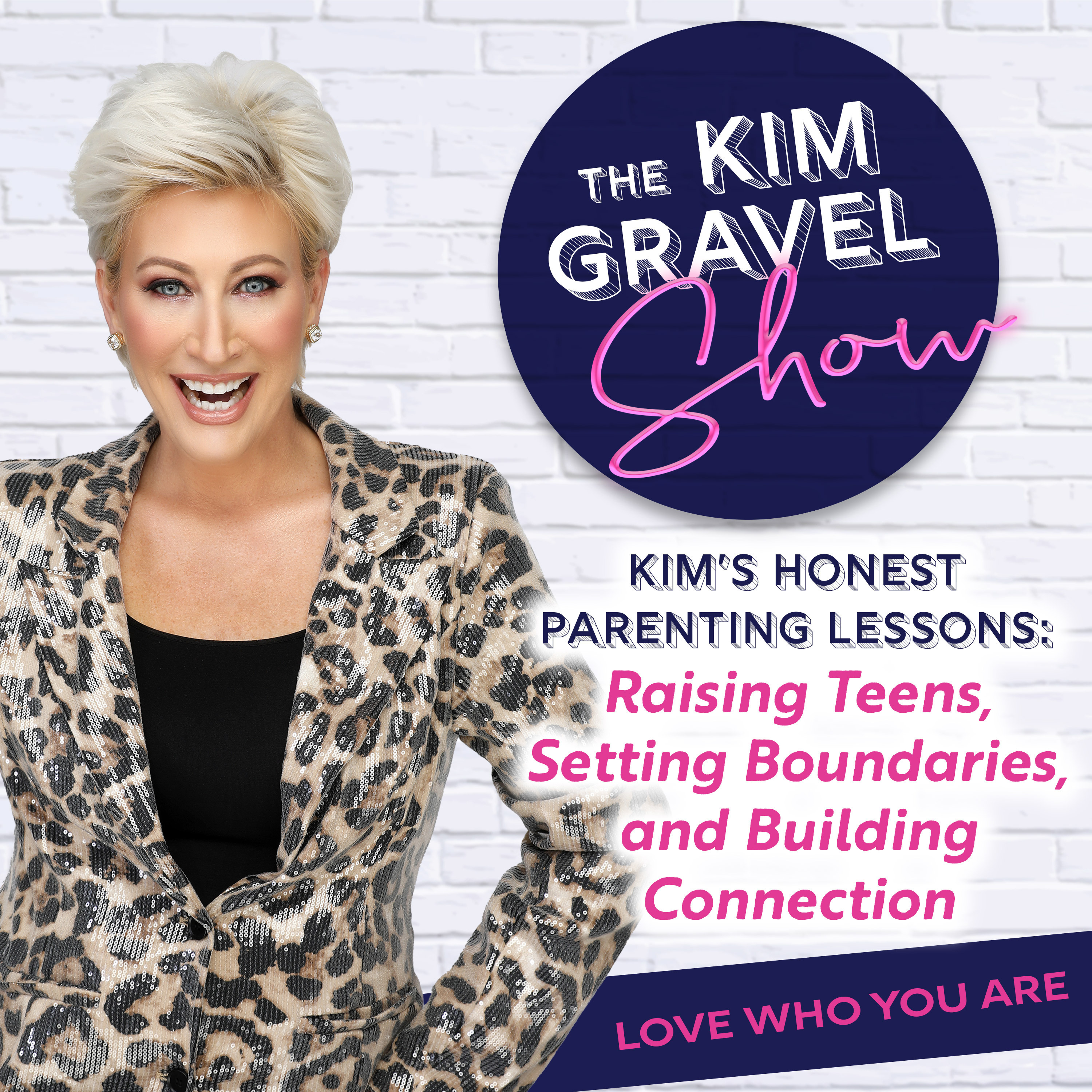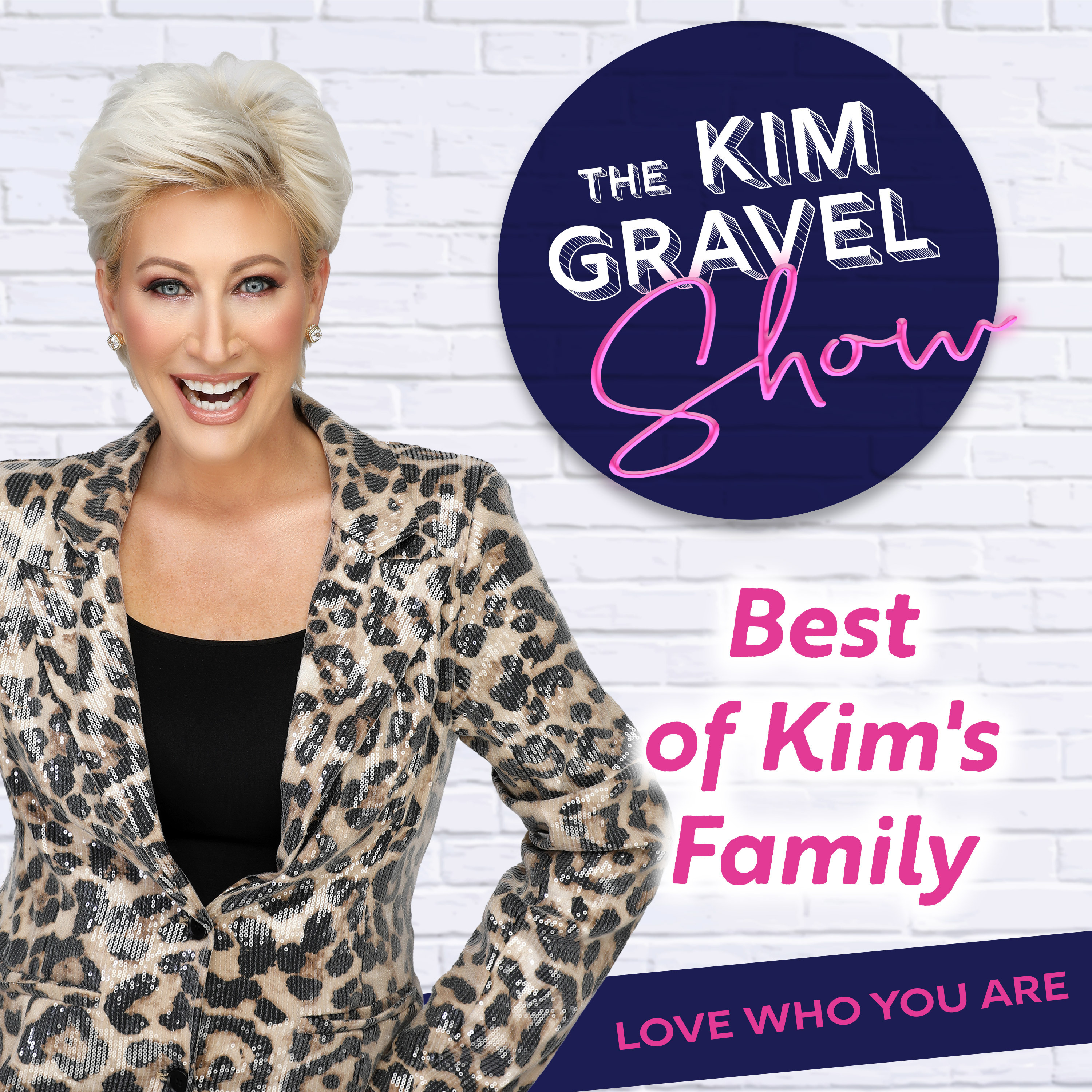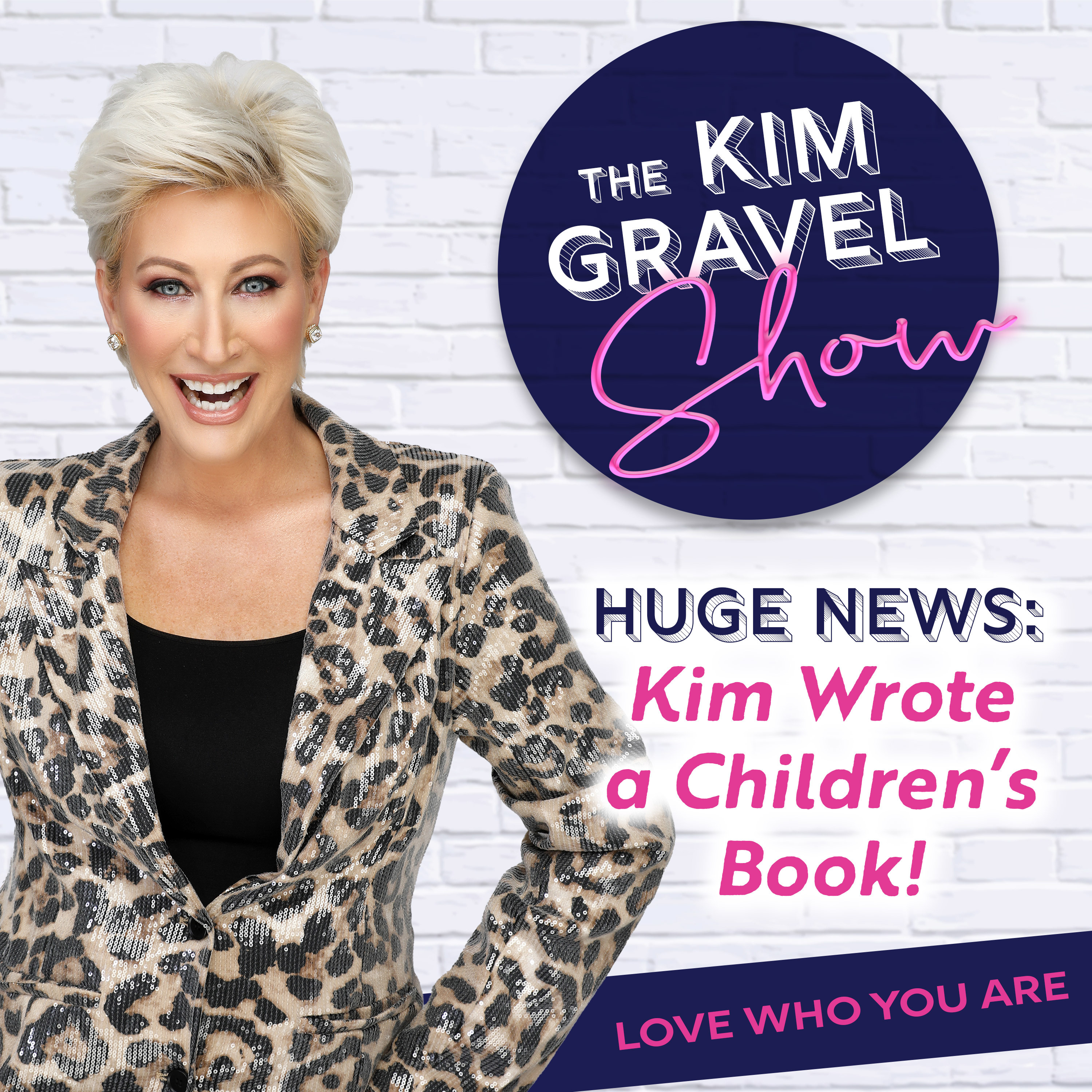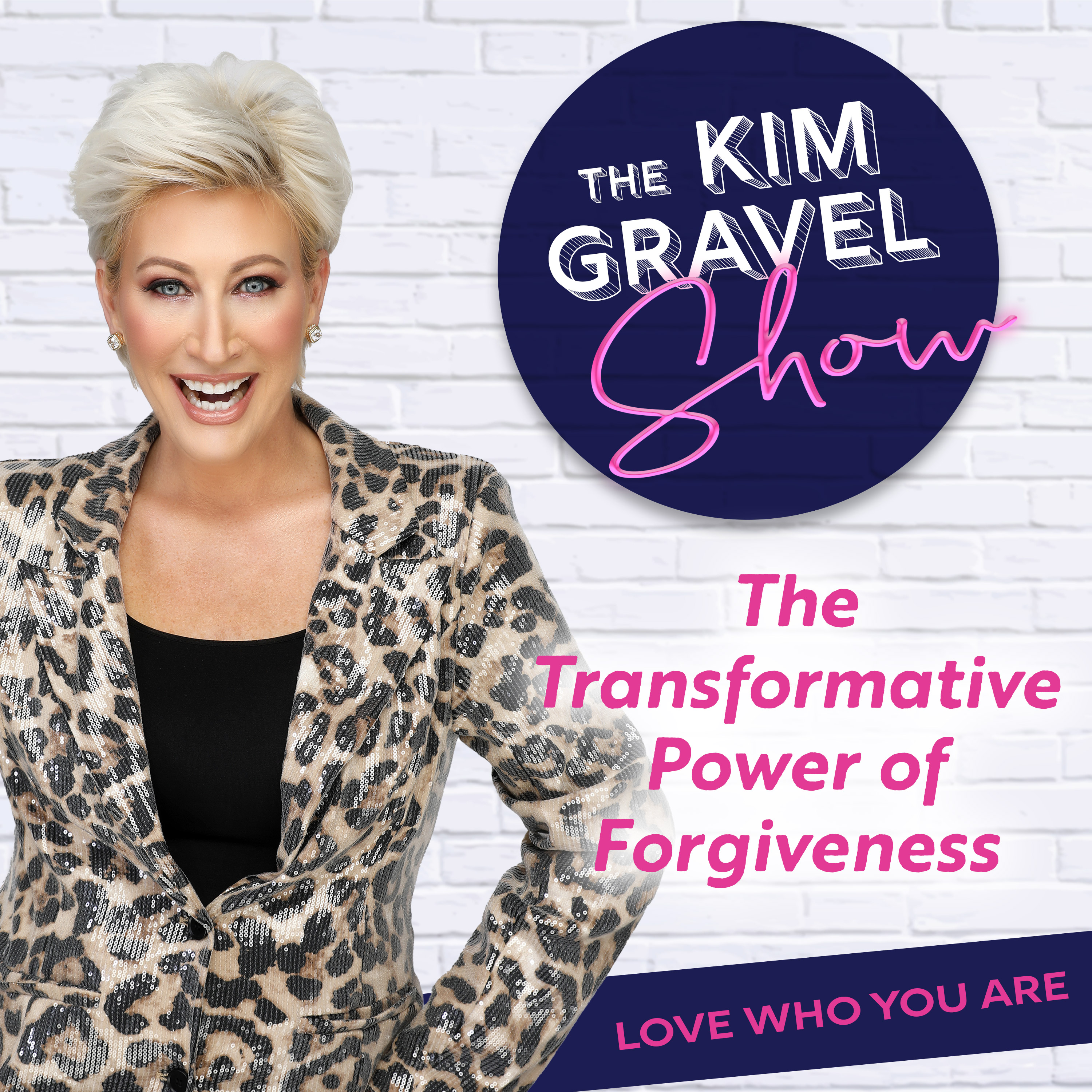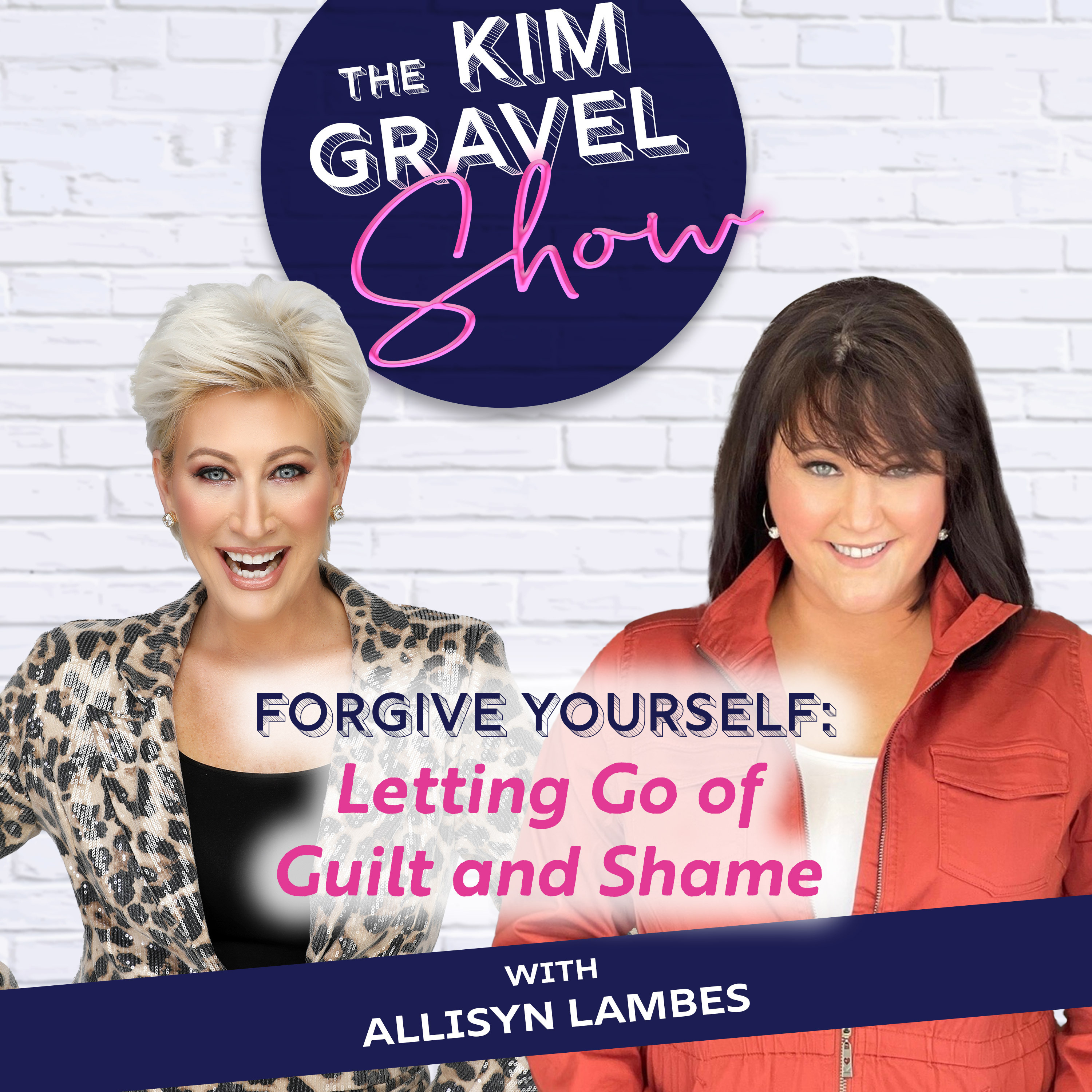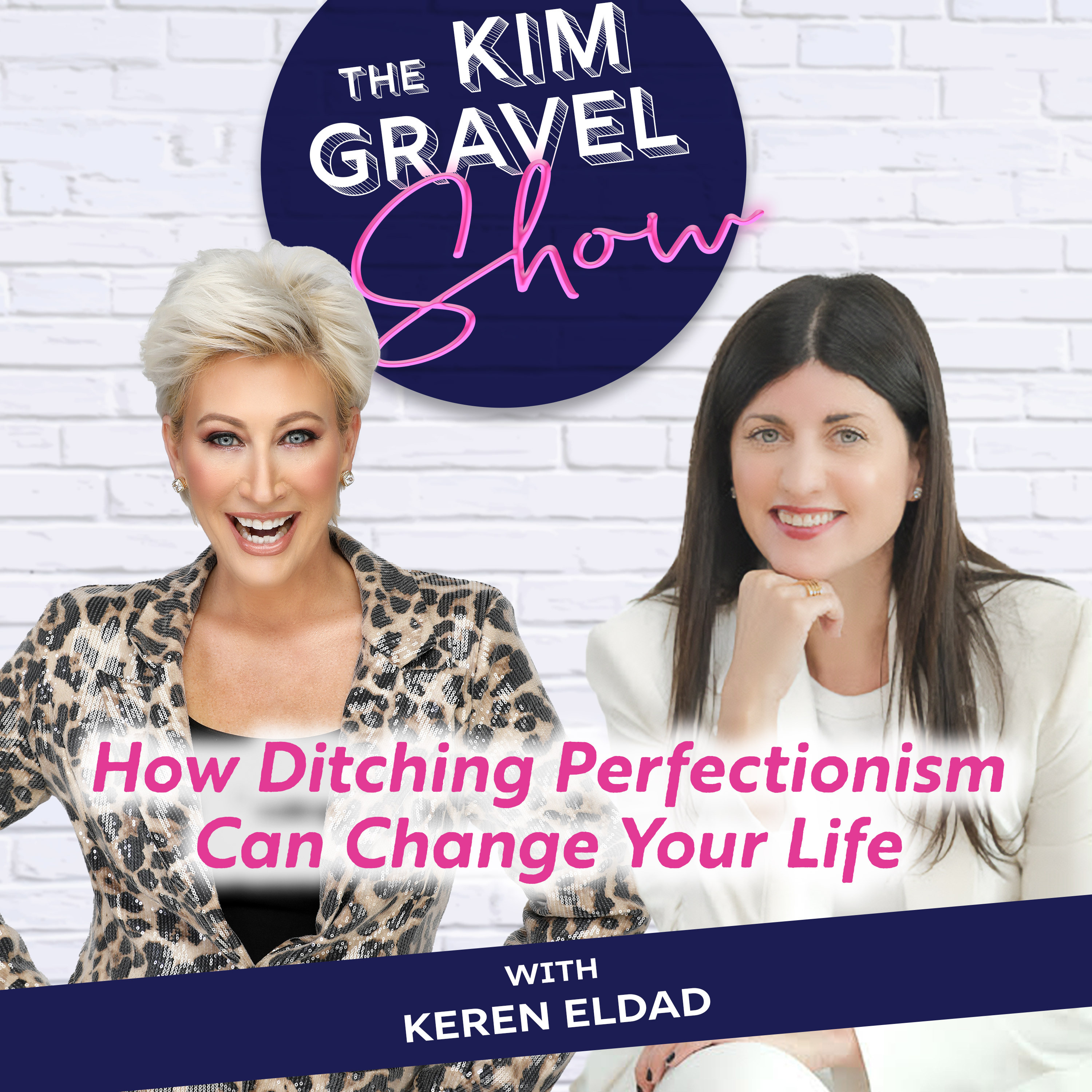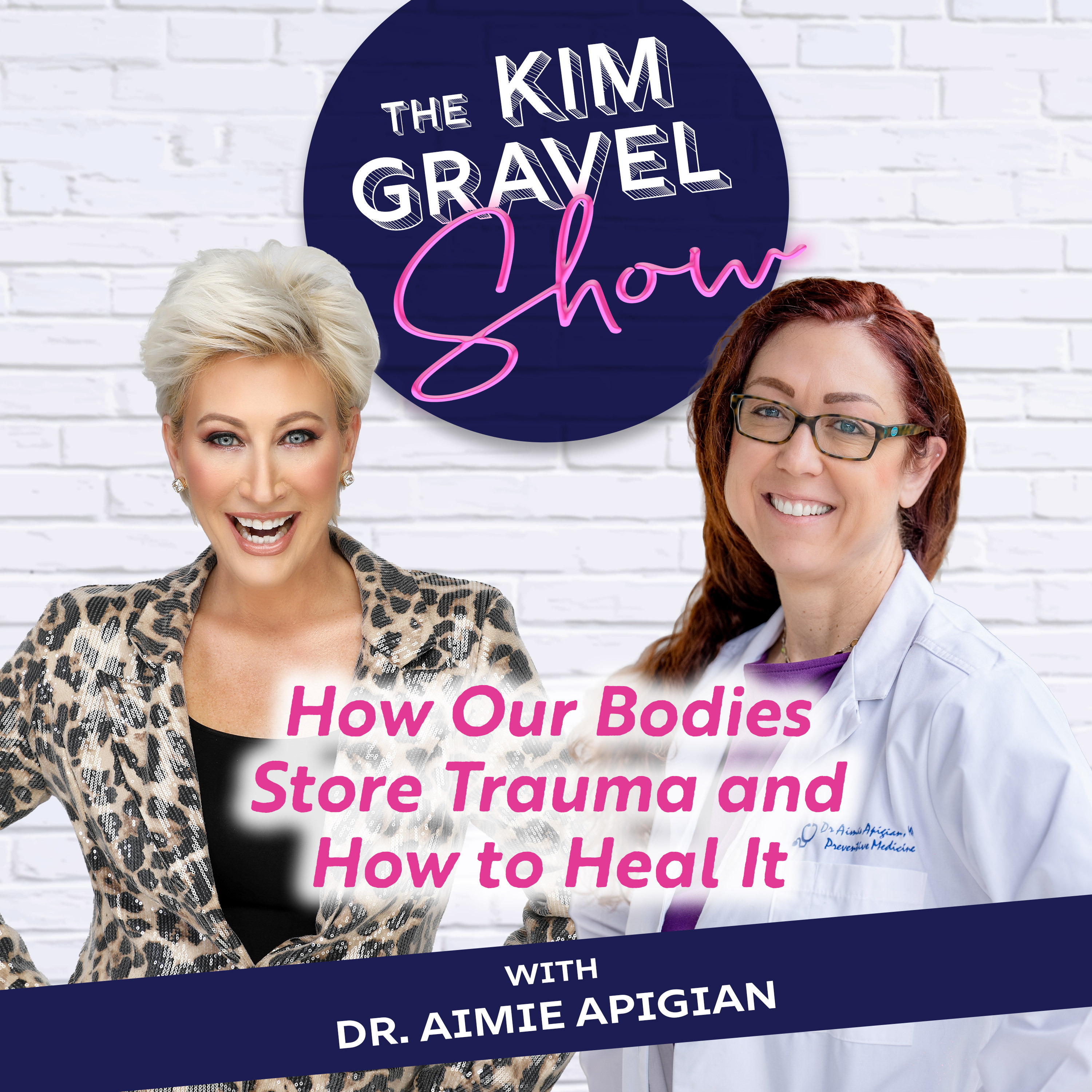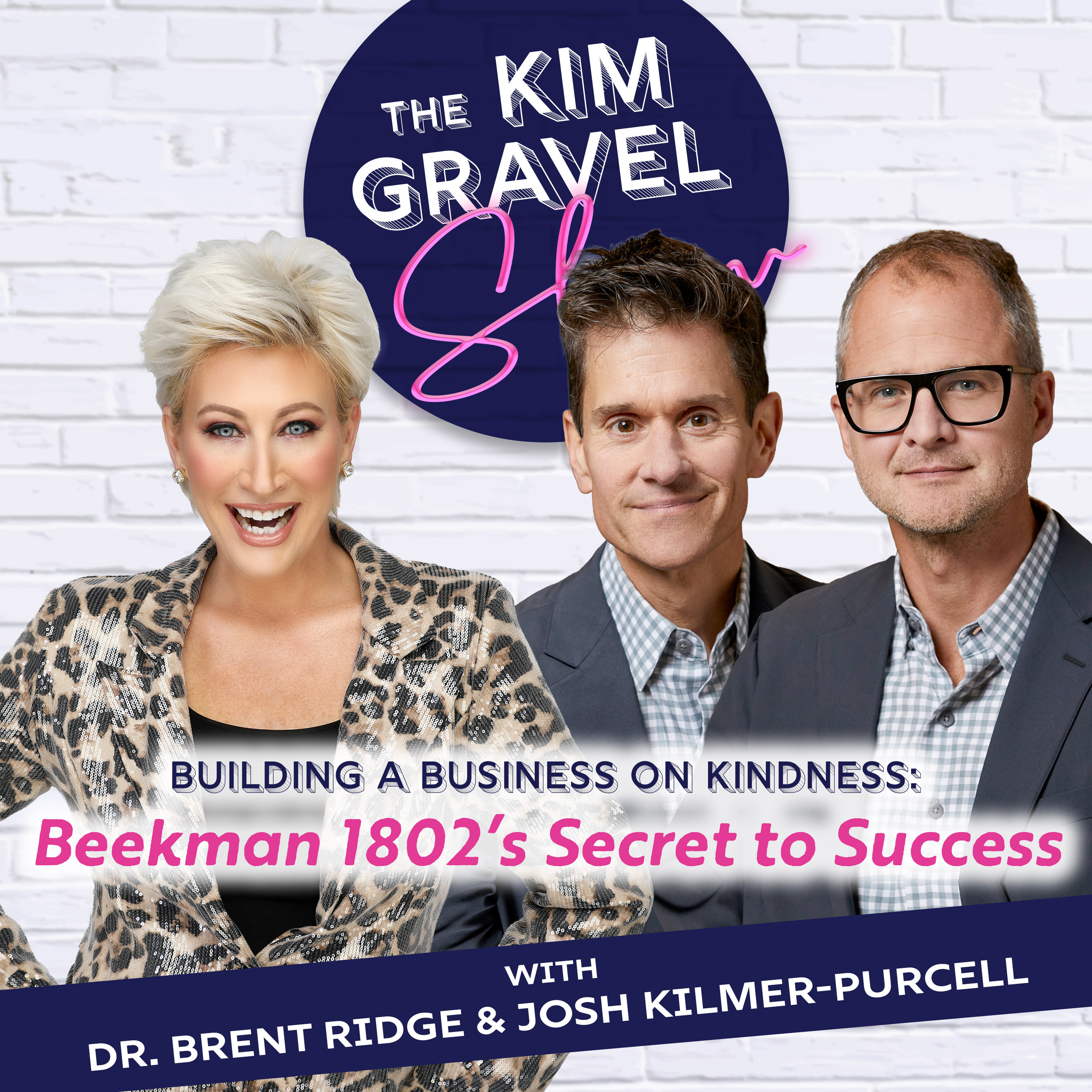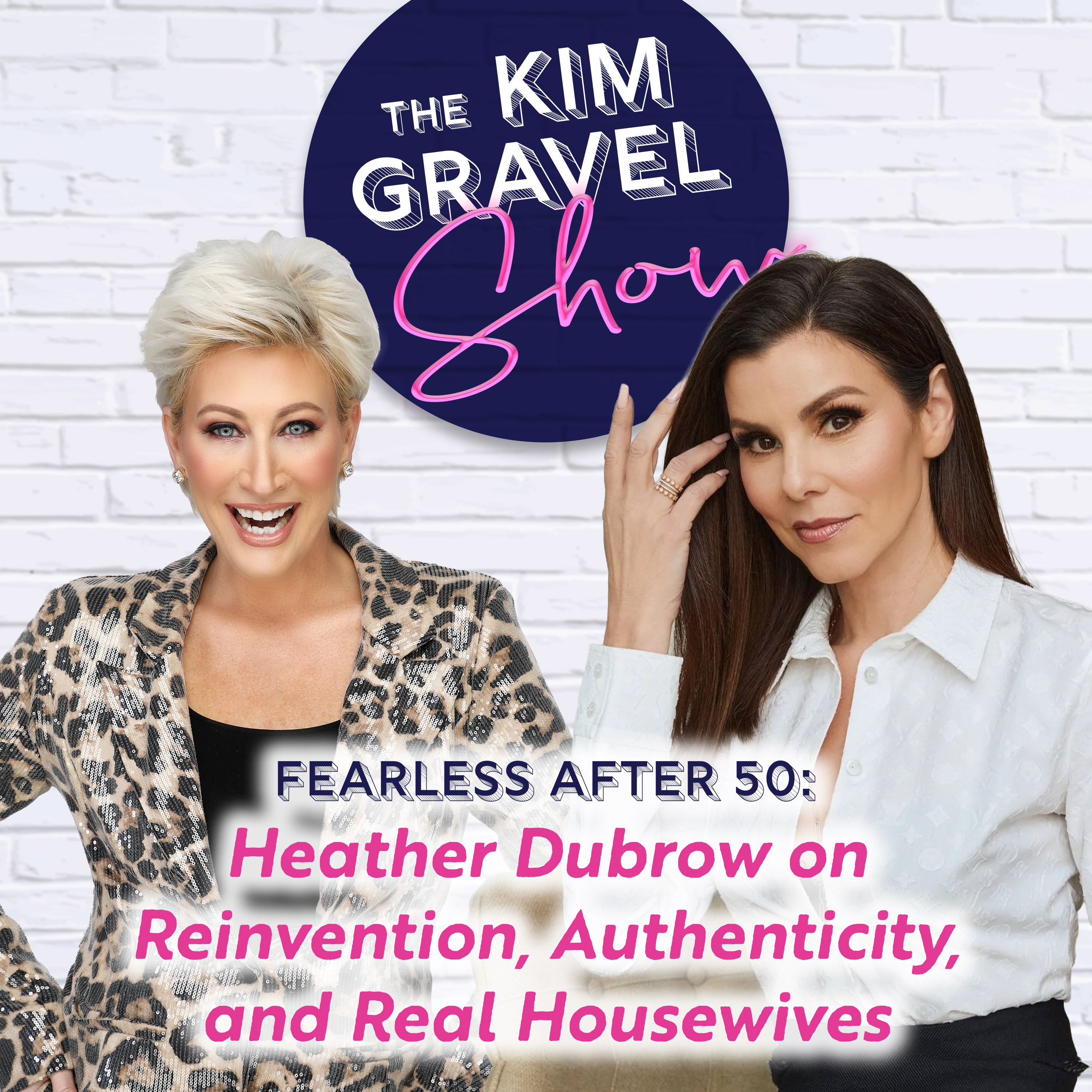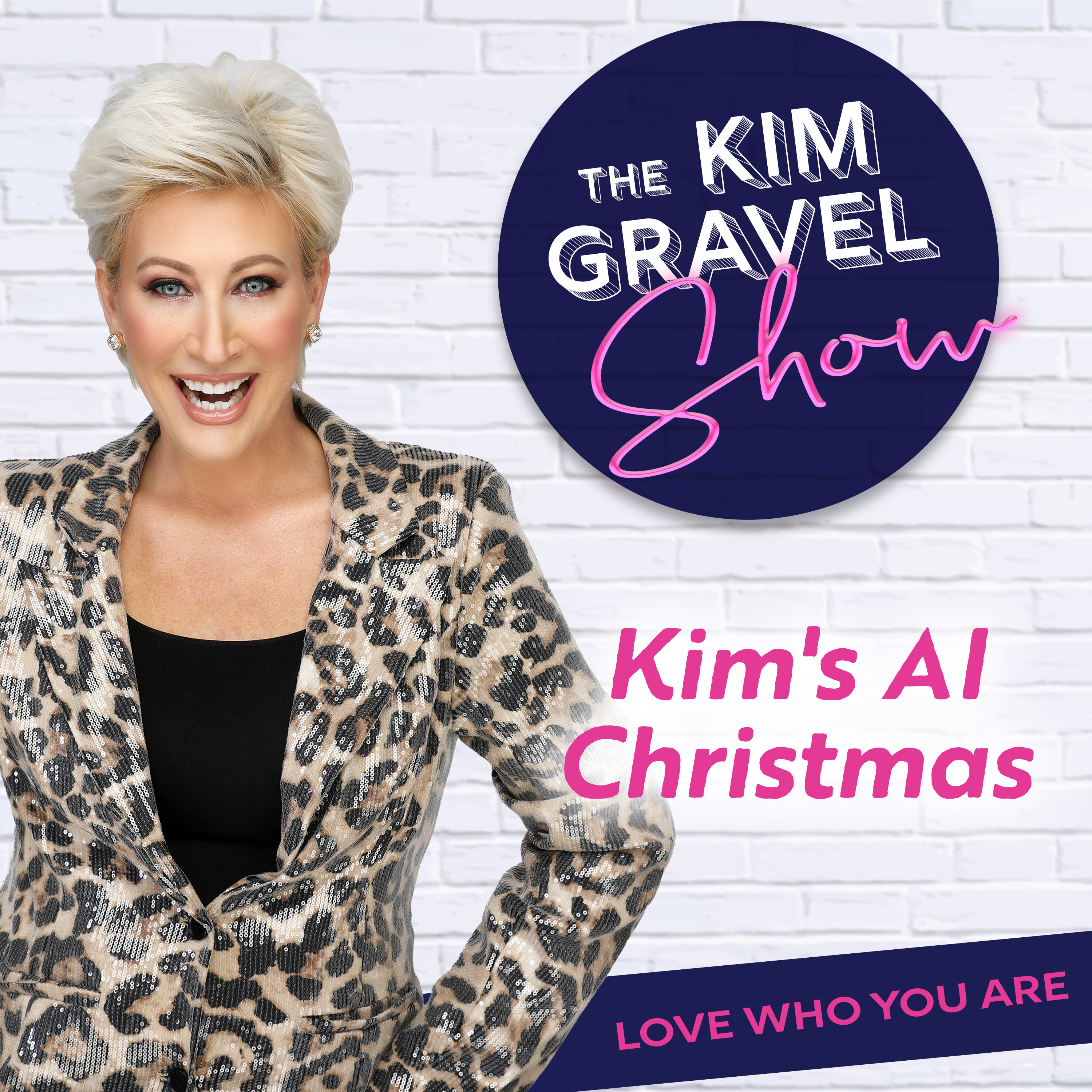Doctors Handed Her a Death Sentence, She’s More Alive Than Ever - with Cancer Survivor Dana Bledsoe


Dana Bledsoe took her stage 4 cancer diagnosis and turned it into a mission to show the world that it is possible to live joyfully and find the beauty in it.
Dana Bledsoe took her stage 4 cancer diagnosis and turned it into a mission to show the world that it is possible to live joyfully and find the beauty in it.
Dana shares her journey of not fighting but healing her cancer and finding peace and joy in every moment. Dana, living with stage 4 cancer, was told she only had 8 to 10 years to live, but instead of letting cancer define her, she has decided to redefine the way we all look at cancer.
Dana’s joyful energy and effervescent personality are contagious, as she tells us her cancer story and what it takes for her to truly live in the moment. From learning how to let go of fear and anger to regaining a positive and clear mindset, Dana’s advice is vulnerable, empowering and tangible for any personal struggle you may be dealing with.
You don’t want to miss this inspirational cancer story that will teach you how to live in the present.
If you want to submit your photographs to Mysterious Bodies please email: mysteriousbodies1@gmail.com
In this episode:
- Coming to terms with stage 4 cancer diagnosis
- Dealing with personal struggles during dark times
- Healing cancer instead of fighting it
- Stepping into your emotions and seeking therapy
- Learn that your vulnerability is strength
- How to get the zest back for your life
- Living in the present
- The human connection
- How Dana is changing the face of cancer with Mysterious Bodies
Be sure to tell a friend about LOL with Kim Gravel!
Email lolwithkimgravel@gmail.com or leave us a voicemail at 404-913-6460 and let us know what you think of the show!
Connect with Kim:
Connect with Dana Bledsoe:
Contact Mysterious Bodies: mysteriousbodies1@gmail.com
Learn more about your ad choices. Visit megaphone.fm/adchoices
*This transcript was auto-generated*
Kim Gravel: [00:00:00] Hey everybody, Kim Garavel here. Got Zac by my side via Zoom.
Zac Miller: We're Zoomin. We're Zoomin' around the world today.
Kim Gravel: Yeah we are. Do you remember the song Who's Zoomin' Who. You don't remember? You don't know the artist?
Dana Bledsoe: Aretha Franklin?
Kim Gravel: We haven't introdcued you into the show yet?
Zac Miller: No, Dana's got my back. All right, Dana. Thank you. Well, I'm fine with this.
Kim Gravel: Who's zoomin who Aretha Franklin baby! We are zooming around the world though, Zac. We have a dear friend of mine on today. I met her at QVC, but the beautiful [00:01:00] thing about this, this woman and her story is the hope that it spreads to other people because she has dealt with cancer in the most amazing, elevated way.
And she's going to tell us how. Zac let's welcome Dana Bledsoe into LOL with Kim Gravell.
Dana Bledsoe: LOL. I love it. Do you know, do you know that when people would text me LOL, I thought it meant lots of love.
Kim Gravel: It means a lot of things.
Dana Bledsoe: It means lots of laughs. Laugh out loud. See, I don't even know what it means.
Kim Gravel: Dana. You could do anything to do. That's the great thing about like all of those little symbols. I know when I go to cyber stalked and stalked my son's like texts, girl. Cause you have a use of 15. [00:02:00] Oh honey. This is why you TCD BT and I'm on Google.
Dana Bledsoe: What does any of that mean? By the way,
You need to teach me how to do that. Because my son, my son says, he's going off on a bike ride and I'm like, where are you going? And he goes, I'm just going to go on a bike ride. I'm going, I don't even know how to do the, find my phone thing. I'll need to put them down.
Kim Gravel: You gotta be like dark 360. I just was stalking my son before we got on the call with you or what not, it got pretty intense. Something he shouldn't be I'm sure.
Dana Bledsoe: I just get a lot of pushback. That's what I get. And then he goes I'm 15 now and I'm like, you're not making your own money.
You're still living at home.
Kim Gravel: I knew you were going to say that.
Dana Bledsoe: I fee like I'm too young to have kids. I'm too young. I'm 54. I'm just, I feel like I'm 20.
Kim Gravel: Well, you know what? This [00:03:00] is the thing. I think Dana, what you have been through in your life is giving you this resurgence of life and, um, freedom and excitement and passion it's because most of you, if you know Dana from QVC, you might know this story, but a lot of people don't know this about you.
You were diagnosed with stage four cancer. You were almost given a death sentence.
Dana Bledsoe: Uh, yeah, they've given me a certain amount of years.
Kim Gravel: Okay. So let's tell me the backstory of all this because you and I have discussed it, but it's been briefly in not enough time. That's why we want to have you on the podcast.
Dana Bledsoe: So when I was 40, I was diagnosed originally with, with breast cancer and that was sort of a stage one B, which now they don't, they just kind of. And, you know, I did all the chemo and much to my, I did not want to do it. It was, it's just, I look at things in a very holistic kind of way. Of course. And so I did that and I [00:04:00] did the radiation.
I went on this horrible thing called Tamoxifen, which a lot of women would know, which, you know, I try to speak very, very openly about it. And they said, you're the golden girl. We're going to do your lumpectomies. Yes, I've still got, my boobs are small, but they looked good. Well, but they listen, they look good in this dress and they said, don't use the golden girl.
You, you know, you've made a good looking cancer. And I'm like, yeah, of course it was. And they said, well, we'll never see you again. Well, you know, the truth is, is that 50% of women that are diagnosed with breast cancer, it will come back in five years. Wow. 50%. Wow. So I didn't, I didn't know that anyway, I'm learning so much about this now that I have a new oncologist who really likes to explain if they, anyway, it was five and a half years later.
And, um, you know, I [00:05:00] go get my normal checkup, my in my mammogram, and they're doing the, I always get a mammogram sonogram, which is what I always recommend. It would get, you know, they're underneath my arm, the I'm underneath my arm and she stopped. She said, I'll just be right back. So the doctor comes in and he's, you know, got the vanilla folder.
And I said, I'm in trouble. Our entire. We need to do a biopsy now. And I was like, yeah, I can't do a biopsy right now because I need to do this, this, and this seems like, well, what'd you think you might be able to vision a biopsy? And I said maybe, maybe next week. And he's like, no, no, no. I think we've used it box boxing.
So I knew, so it's stage four metastatic it's, um, in my lymph nodes, three places in my spine, uh, one place in my left hip bone. And then, um, Earlier this year, because I'm such an advocate for myself and my body that I can feel things. And I just know [00:06:00] it's now in my famous friend. And that was a year of me saying to a doctor something's in my chest.
I can't breathe. Something's in my chest. And it is, it is cancer. My time is planned. So, you know, I, um, they've given me a certain amount of number of years. Do I listen to that new? What do you won't even speak it out? Well, I will, they've given me eight to 10 years having stage four metastatic and I am six and a half into those.
Yeah, but the funny thing is, is my, all my friends say you're going to outlive us all because of my attitude. And I ha I just, I just, I love life. I love life. And I, and I think, I think the thing is that everyone thinks everyone knows that death is going to come. Right. And we're not alleged. The differences is I face it and I, I I've dealt with it.
I've made peace with it. I've even planned my [00:07:00] parties. I've planned how I want to go. I've planned, you know, and because I've had to, and I think it makes us think in a very different way, which is that in the present we're in the present, we're blessed. We're so blessed, you know, and, and you've got to see.
The joy. It doesn't mean I don't get depressed. It doesn't mean I don't get sad. It doesn't mean, but I've never used. I've never said why me never. And I've never used the word fight. I, there was no fight. There was no fight. Okay. Why did you, why would you say that? Because there's a lot of people listening that have struggled or is struggling and you hear that campaign.
We're going to fight the cancer. We're going to fight. Why didn't you choose not to use that word? Because fight is an aggressive thing and it's going to go against you. It's not a positive thing. We're not fighting anything. We're actually healing. It. You're actually feeling that's what. [00:08:00] When you fight, you're going against the spirit you're going against, you're going against so much.
It's, it's a negative connotation. So I just say I'm healing it. I, I think that cancer, not that we, not that we will it on, so I don't want, I don't want anybody to misunderstand. It's it's, I've done a, you know, a lot of thinking about this, but I see it as my greatest team. I see it as a gift to learn and to grow as a human while I'm in this body while I'm here, why God has put me here, why has God or spirit put me here?
Why, why am I here? And so I think I've got to take cancer and, and take it for the good, for the good, for the lessons that I need to. How to be a better person, how to love more, how to give more, how to celebrate life more? Who can I impart that on? You know, if you [00:09:00] see someone who's. In, I don't know an abusive relationship I just watched made, um, which I think was phenomenal and broke my heart, but, you know, God, she, she just believed in herself and it's a true story.
She just believed in herself. And I think if you can impart that on somebody to say, you're a light, you are so bright. You just gotta know that and, and go in and turn that. And it's okay. When things get really, really dark to know that it can pass that you're never alone. You're never alone. You're never alone.
Kim Gravel: Why don't you think Dana? Of course I second, everything you've just said. Um, and totally believe every word you just said, but why do you think we as human beings and especially women? Cause I think we're very hard on ourselves. Um, very hard on ourselves. Why [00:10:00] do we almost obsess, idolize, lift up, put on a pedestal, our heartaches in our struggles and, and not see that light that's within all of us?
Why do you think that is?
Dana Bledsoe: Well, that's a very good question. I don't think we've been given that in history. I don't think we've been celebrated enough. I think, you know, I think other women also too, are very hard on other women and I think that's. I think we've, I think we've got to look at each other and say, you are rising to the top and you are just forming this shape and you are in, you are everything in you are beautiful.
And I think we have to stop being negative towards each other. I think we've got to celebrate each other and I think [00:11:00] we've got to stop. I think we've got to really teach girls from a young age. Yeah. Very very young age to love themselves. Exactly who they are. Exactly. Who you are, no matter what it is.
You've got to celebrate that. And I think we've just got to stop the negativity. I don't know why we do. I mean, I catch myself doing it. Oh, you in that yesterday. And I said, what, why the hell am I? We all do. Yeah, who cares? Conditioned. I think we should look at it and say we're conditioned. And I think that, I think that's, we've, we've got a long way to go to uncondition that in, in, like when you look at a runway, you know, you look at a runway and everybody is like this, like a toothpick.
We got, we have to stop that.[00:12:00]
Kim Gravel: Yeah. And I think we are getting there. I think we're getting there slowly, but surely. When you were getting your stage four diagnosis of cancer, um, did you have any dark downtimes? How did you, you know, work through that and understand, okay. How did you come to terms with that diagnosis?
Dana Bledsoe: Uh, you know, what was really weird too, is that I was actually alone. We have a little tiny farm and I was there by myself and the doctor called and said, You know, have you ever hurt your spine? Cause it's in your spine. And, and I put the phone down and ran singing the hills are alive with the sound of music.
Kim Gravel: This is just trying to stay in a positive place, girl, positive.
Dana Bledsoe: Something also sort of focuses. You're like, oh, okay. Right. [00:13:00] I'm right. This is what I need to do. What's the next step? And you just life becomes about. And if you can stay on that, but have I gotten dark? Oh, Kim it got so dark a year and a half ago, really bleak, really, really bleak, actually longer than that I had, um, I had a decision to make because I don't do any of their drugs. So they had to shut me down with my menopause. They had to just slam me into menopause. So I was immediately slammed into menopause. As you know, menopause is crazy enough, but women go on I'm in it.
Kim Gravel: Yeah. There's no pre in the menopausal anymore.
Dana Bledsoe: So you've got the vision, the brain, the forgetting words for getting things I can tell you that I've done that even today.
Kim Gravel: It really does change your whole way of living. [00:14:00] It changes everything .
Zac Miller: It's too bad. Cause I actually thought Kim that our cycles were starting to align.
Dana Bledsoe: I think men have menstrual cycles.
Kim Gravel: Well, honey, Zac's taken up the cycle cause I don't have a cycle anymore. Is that overshare?
Dana Bledsoe: And why is men in everything? Can't we own something ourselves. Pause for ourselves. We don't.
Zac Miller: Nope. Sorry I'm speaking for all men right now.
Kim Gravel: We need you, Zac. We need you that in those dark times. Dana. What did you do? How did, how everybody listening there? Everybody's got their own struggles, right? So, you know, summits, cancer, summits, you know, financial summits, relational.
I mean, everybody's got their struggles. Everybody's in the stage four of something, right? How did you get some of those dark [00:15:00] times? Dana, give us some hope.
Dana Bledsoe: I cried a lot. I prayed. Um, I prayed a lot. I leaned on friends. I leaned on friends, friends, women, friends, women. When, when you've got to know that more importantly, sorry to say this than family, because that can be very tough on my friends.
And I realized that being vulnerable and being honest and saying, I need. I need help. And, um, what's the most powerful thing that I could do because then my friends were there because when you're a strong person, when you're a strong woman, people think that you don't need them and that's not true. You actually do what you need to do is, is just be vulnerable.
There is such strength in the vulnerability. Listen, I also, I had [00:16:00] fair. Three times a week I needed and you have to find the right person. But there were times when I went outside and I screamed and I, I got rageful and I it's okay to be angry. It's okay to be rageful. It's okay to get down on your knees.
There were times there was one time. I remember. I got so dark. I thought, I just don't know if I want to go through this. You know, this is like, you're dangling a carrot going, you've got eight to 10 years, eight to 10 years. Well, when's it going to get worse? And when's it going to go to my liver? When's it going to go?
And, you know, um, you're starting to start imagine. And because I had no happy hormones, none, zero. I couldn't rely on that. Do you know what I mean?
Kim Gravel: It was chemical and emotional and mental.
Dana Bledsoe: Oh yeah, absolutely physical, [00:17:00] you know, everything. There was times I got down. I remember I was with this woman on the phone, she was sort of guiding me, you know, it's a therapist, whatever.
And, um, I said, I want to die. I'm so unhappy. I am so unhappy, but I know that I'm not, you know, it was, I get that. I get that. I get exactly what you said that again. Cause a lot, I get what you're saying. Okay. But you know, in your mind not right, right. Yeah. I know who I am. I know who I was. I know that I have a zest and a love for life.
I know that, but the pain was so deep that I said to her and she said, how dare you? God, won't let you [00:18:00] die because you were put here to do good. You were pushed here. So until you fulfill that, you're staying right where you are.
Kim Gravel: Right. She's right.
Dana Bledsoe: And she was.
Kim Gravel: You said something that I think a lot of us I'm speaking for everyone listening in myself included, and even Zac, you said, I know I have a zest for life.
That just that right there is what I think we're missing collectively, really passion, this zest, this. You know, hunger to live every day to the fullest. Wouldn'tyou say Zac, I wanna include Zac in, on this conversation just because we hear this all the time, Dana, that people are like, we're so down.
Um, how do we [00:19:00] get the zest back? How do we, like you said, you said, I know I have as a it's already in us. How do we tap into that again?
Zac Miller: That's a good question.
Dana Bledsoe: Connection. Connecting physically connecting with people, but physically connecting with, we need each other. And I know that this past year has been, and it's only telling us nature's only.
I'm sorry, you can do what you want. You can backs what you want. You can take people away. It's not, you wake up, wake up, stop playing your video games. Stop doing Instagram all the time. Pick up the phone, meet someone for coffee. Go give them a hug. Connect, sit down, connect. You know, the tribe, the tribes, right?
Don't get me started. Why do they live longer? When women, women in India sit around, it's called the peanut talk. Did you [00:20:00] know that they, they shocked the peanuts and they talk and they share, we, as humans are meant to connect, we're meant to tell our stories to each other. Face-to-face we're meant to hug.
We're meant to kiss. So when I would feel the worst and down, I was like, I was alone. So I would, I would walk around, I would just go meet people. I'd sit down and have a coffee. I'd actually do something for someone else. And that makes you feel amazing. I remember if you're in a supermarket and you see the girl at that checkout counter, or somebody's struggling, I dare you to go up to them and say, are you okay?
Hi, do you need a hug today? Or how are you doing today? It'll take them back, but you can, you can just look in their eyes and say, I just, I just wanted, I just wanted to say hi, I wanted to lift your. [00:21:00] How are you doing? Let them know that they matter, let them know that they are seen, get out of your own way, get out of your own way and stop idolizing people.
That don't matter that they're not doing anything for this world. Look at the people just help somebody else. And all of a sudden your heart is going to start blossoming and start feeling this joy.
Kim Gravel: You know what I call it. Dana, I call it, do you remember that old candy pop rocks and you'd put it in coffee.
That's what I tell my kids all the time. I was like, go to school, be a pop-rock. Pop pop, let people taste the flavor and see all the spices into then the joy and the fun and the go be a pop rock. And, and they relax it, mom and I showed them what the little packet and popped in their mouth. I said, go and be what be, what people need.
And then your needs will be met.
Dana Bledsoe: That's a brilliant saying.
Zac Miller: And everyone needs [00:22:00] pop rocks.
Can I just say though for just like one second, because what you just said, like going, so if I'm feeling down, right, I'm going to go to the grocery store and, I'm going to have my AirPods in, and I'm going to not talk to anybody because that's just, that's my personality, right?
You are clearly like a very outgoing person that's beautiful. Like that's you, you know, for those of us who struggle with that, just on like a day to day, right who are like awkward around the people that were good friends with half the time, especially now as we're all out of practice.
Kim Gravel: I love it, Zach.
I love your honesty.
Dana Bledsoe: No, no. I think that's really, I think that's where it goes. I'm sure people listening are going, but that's not me. I'm not like Dana or Kim and I wouldn't, I wouldn't go out and do that, but I think there's other ways that [00:23:00] you could do it. Maybe, maybe, maybe you can just call up a friend.
I think there's just a little thing that you could do, you know, you could randomly buy someone a coffee. You could, I don't, I don't know. There's little ways that you can connect, first of all, take the earbuds out and don't isolate your. Let yourself be, be open, be open to that. And I know that I know lots of people that will not talk about their feelings and they will not.
And I think also know when you need help, know when you need help. When I was slammed into menopause and six months later, it really hit me. I had, you know, I had nothing to make me happy. I knew that I needed help. Nature is also a great help, but if you need therapy, get therapy, if you know, I was in it three days a week, three days a week, and I had to find someone who really spoke to me, you know what I mean?
Absolutely. And then the other [00:24:00] thing that I'm really going to be honest with. Which is, you know, as I, I did the yoga, I've done the food. I did the therapy. I did everything in the end. In the end, there was something that was bigger than me. It was, it was bigger than me. It was a, it was a cloud I couldn't get rid of.
And that's because I have no hormones. And so I did make the decision to go on an antidepressant. I had to make that decision. And I had to make peace with that and forget all the stigma because that stigma needs to be rewritten.
Kim Gravel: But can I say something, Dana, I love you going here because there's so many people, but to me, the most important thing that you said this entire episode is that I had to make the decision. It's not what you decide. For most people, [00:25:00] it's just dang. I need to make a decision. I need to do something. I need to make a choice. And like, I was going to say, Zac, he's an introvert. My best friend is an introvert. And I felt like, you know, a lot of times I've been dragging Amy around to talk to people.
But the thing is when. When she opened herself up, like you said, take the earbuds out, be available when she decided, okay, this word decision is when she decided, okay, I'm an introvert, but you know, I'm not a mute. I'm an introvert, but I like people, I want to be in a relationship. Her life changed. And you just said that you had to decide, so her hangup was meeting people, talking to people you're hang up was I don't want to be an antidepressant because of the stigma, but when you decide to make a change in your life, that's the most empowering thing we can ever do for ourselves is just decide.
Dana Bledsoe: You've got to decide. You've got to decide. Yeah. I think we all know that. I think we all know the truth. [00:26:00] It's whether or not the decision is already inside of you.
Right. You've got two things you're already leaning towards what, what is the right one to step forward. Right. But you know, it, you, you can either stay in the lie kind of, which is, which is a tough word, or you can step into. And that is to make a decision. And once you put that one foot forward, I think you can go forward.
I think you've done it. How we've done it, no matter how scary it is, you've got to go forward because otherwise you're saying stagnant and then nothing's going to change. Nothing is going to change.
Kim Gravel: Can you tell me about your project mysterious bodies? Because I believe my body is very mysterious cause I never gonna show it to nobody. Okay. It's going to [00:27:00] remain a mystery girl,
I'm so excited because people don't know as much, you didn't, you're extremely artistic, very, you know, creative, artistic, you know, into what is mysterious bodies.
Dana Bledsoe: So a year ago, I kept looking at the way breast cancer and women with breast cancer or had in that, um, I'm being photographed. It is not a pink ribbon.
It is not pink. This, I know you were in pink, which is gorgeous.
I love pink. Well, what's up with the happy faces or constantly showing us with chemo bags and a bald head. And that is, that is the disease. That is the dis-ease and the illness. It isn't us. It isn't me. It isn't my journey. [00:28:00] So what, what I, I said, why is breast cancer? Not being shown as art. Wow. It should be art.
Wow. We hang art on our walls. Everything is being shown in an artistic way. Why are we being shown in a way that repels people, that fierce people? Okay. One every two minutes, a woman's going to get diagnosed. Isn't that shocking? Every two minutes a woman's going to get diagnosed. Why are we repairing people instead of inviting people in to this conversation, into our worlds?
Because my world is your world. When you look at one of our photographs, you don't know that it's about breast cancer. You just see what, what, so what. What we're doing with the beautiful Janessa and Ryan, then [00:29:00] you would probably know from QVC as well. But what you didn't know is they are really talented, talented artists as photographers, just brilliant.
I went to them and I said, look, I want to tell a different story. I want to make an impact. I want cancer to be art. So I want to do photographs of women who've had had, or whatever. When we talk to them, we find out their personalities and I say, how do you want to be photographed? And, and, and they tell me, so they tell me, and then we go off and we spin the creative design around it.
So it could be in Vogue magazine. And nobody would ever know that that woman's got breast cancer, but they're going to look at the photograph and you're going to find you're going to be inquisitive and you're going to find connection and some are dark and mysterious, the haunting, and they make you question and think as.[00:30:00]
Yes, it's supposed to help you expand the human life and the human condition and bring out your emotion and that's, that is what we're doing. And that's what we're doing. So we are in the second phase of it. We've, we've got four phases that we're photographing, we're looking for more women, and we're going to do an art show in, in New York and hopefully take this around the world.
And you know, what, what I also want to. Is I want to do, like whenever you go to a small town and you see these war memorials and things, I think where is the, where is the tribute to the hundreds of thousands of women who are so powerful and so dynamic and they've had breast cancer, where's the tribute to them.
So I would like for anyone who's had breast cancer or a mother, aunt, or anyone that you knew to send me a photograph from the shoulders up and we [00:31:00] I'm going to build a mammoth. Or a video that shows we are working in it. I'm talking to a few artists now I'm hoping to get like 10,000 to 20,000 photographs of women.
And this is a tribute to all of them who, who are sometimes totally faceless and never recognized, never recognized.
Kim Gravel: Women make the world go round. And let me just tell you right now, everybody listening. Dana. Let's let's tell everybody how to get to your website because it's full of self-empowerment videos, really just to give women hope and resource to how to love themselves and care from the south.
And also they can submit these photos and get in touch with you on how to do that on your website. What's your website?
Dana Bledsoe: So the website is danabledsoe.com. But if everybody could send the photographs to mysteriousbodies1@gmail.com [00:32:00] that would be great. We're going to have a whole campaign.
Kim Gravel: Dana, I could talk to you for six hours because you and I are so aligned. We do this when we go to QVC and I mean, we didn't even hit them. We see behind the scenes, but I can't say how much I'm so grateful for QVC because it's connected me with so many lifelong friends and you're definitely one of them, but we close every LOL with Kim Gravel out with what I call rapid fire questions. And I give this disclaimer, every time I say. I don't think about it. I ain't even got to say all that to you. Cause you'll pop it off. You'll know exactly what I'm talking about. You will never, you will not hesitate one bit. All right, here we go. Who is your celebrity crush?
Dana Bledsoe: Ryan Goslin .
Kim Gravel: He's turned out to be kind of like, like a funny kind of, I like him. Oh, that's the other Ryan? That's the other Ryan? No, I mean, funny, like he's hilarious. Is that Ryan Gosling or [00:33:00] Ryan?
Dana Bledsoe: He said he was in the notebook.
Kim Gravel: Okay. That's the other one? There's another Ryan.
Zac Miller: You're thinking of Ryan Reynolds.
Dana Bledsoe: Both Ryan's can take off his shirt. Stand there. Let me look at him. That's all you have to do.
Kim Gravel: We might come out of menopause for that. Okay. Here we go. What's your favorite junk food? What's your favorite junk? She's laughing. She's laughing. No, wait a minute.
I have to admit that was a funny joke. I'm sorry, Zac, but that's probably the funniest joke I've said the whole time. The funniest thing I've said, we might come out of.
Dana Bledsoe: Well, by we will come out of menopause, we're going to get our sex go back.
Kim Gravel: Did y'all don't think that's the funniest thing I've ever said?
Zac Miller: I don't think it's the funniest thing.
You've said a lot of things on this podcast, Kim. That's funny. That's funny.
Dana Bledsoe: Oh, I know. That could be a great, that could be a great thing for women. You know forget therapy. You could just have lots of really cute guys like Chris Hemsworth and just that'll [00:34:00] clear menopause.
Kim Gravel: Your hormones might fire right back up.
Hello. I'm alive. I'm alive. What is your favorite junk food?
Dana Bledsoe: Cake, cake, cake.
Kim Gravel: Um, what is your favorite healthy food?
Dana Bledsoe: Broccoli.
Kim Gravel: Oh my God. You've done gone off the deep end now.
Zac Miller: What's your favorite healthy food Kim?
Kim Gravel: Uh, asparagus.
Dana Bledsoe: But asparagus makesyour wee wee smell.
Kim Gravel: Honey. It smells anyway. So might as well just go ahead.
Dana Bledsoe: If you're French and you eat asparagus, your wee wee does not smell. The French peoples wee wees do not smell.
Kim Gravel: This old [00:35:00] country girl, it's all fallen down and apart. And these things there's skin tags coming up, places I never saw. Okay.
That's a whole nother episode. Alright,
Dana Bledsoe: The worst thing is about being dry down there. We should've talked about that. I did find a really good product.
Kim Gravel: What is, what would you consider your spirit animal?
Dana Bledsoe: I'm a black panther. It's that a spirit animal.
Kim Gravel: I don't know what a spirit animal is. Zac told me to ask that question. Really?
Dana Bledsoe: Yeah. Okay. We're going there. Yeah. I should know that.
Kim Gravel: Cause I'm in, you know, you and I were still trying to figure out how to Google our son's texts. Okay.
Dana Bledsoe: But I do have a spiritual name, Civically Deva.
Kim Gravel: Oh [00:36:00] Lord. You know what mine is. My spirit name is. Bertha. Okay. Here we go. What did you want to be when you were young now? What did you want when you were young? What did you want to be?
Dana Bledsoe: I wanted to be a world-class gymnast. I was much too big. Yeah, yeah. Yeah. I wanted my parents. This is really weird. I wanted my parents to send me to Romania to train and gymnastics. So, cause I heard they, I heard they were really tough on them and yelled at them and go and, and gave them anchovies as a bit.
You know, I don't know. That's what I to say.
Kim Gravel: You enjoyed the torture at that time. [00:37:00] There's something really weird about that.
What is one piece of advice you would give to any woman listening now going through cancer?
Dana Bledsoe: You are not alone. You will never be alone. Reach out to people. I know that it's so hard not to think about it every day.
I think you have to know that this is, and I know this is going to sound weird that this has happened so that you can grow to be even more powerful. You have no idea the strength that you've got inside you at how incredible you are.
Kim Gravel: Well, if that's it, I don't even know what more to say after that.
Everybody listening. Look go to Dana's website, check her out on all the social media outlets. What a powerful message. I love [00:38:00] you, woman. I've loved you since the day I met you. You are truly a hero and a champion for all of us women out there. Just trying to live our best lives. We love you, girl.
Dana Bledsoe: I love you too. Thank you, babe. I love you very much. You're amazing.
Kim Gravel: Everybody listening. Don't forget to subscribe to LOL with Kim Gravel, and we're going to put all this information from Dana in our show notes. Zac, I'm telling you, life is short.
You got to live out loud, love out loud and laugh out loud by y'all.
If you love the show, make sure to follow LOL with Kim Gravel in your favorite podcast app. New episodes come out every Thursday. LOL was Kim Gravel is produced and edited by Zac Miller at Uncommon Audio. Theme music by Taco Pella. Head to lolkim.com for more information, [00:39:00] and to join our mailing list.
Thanks for listening.


